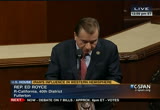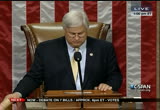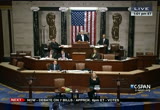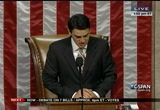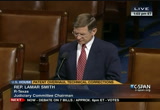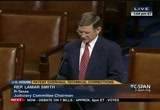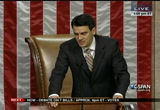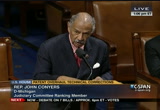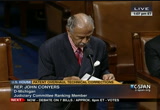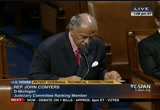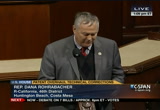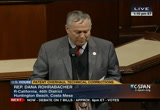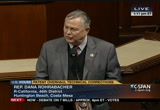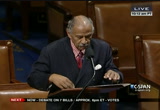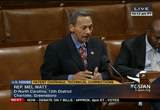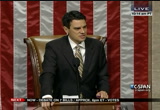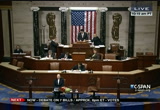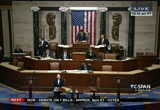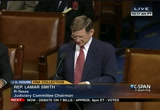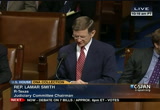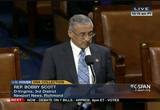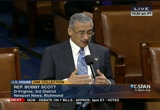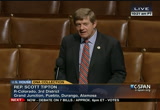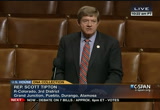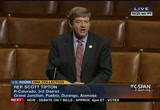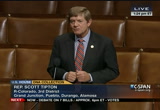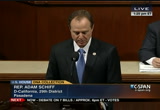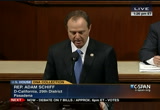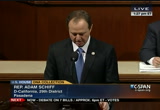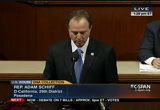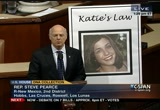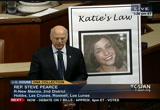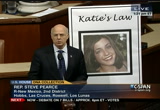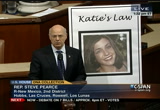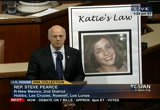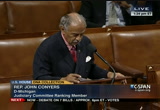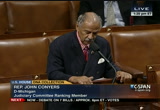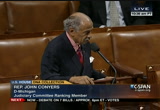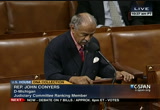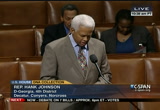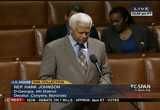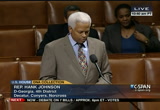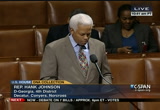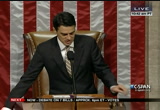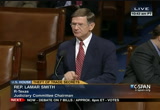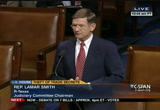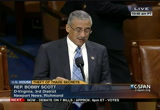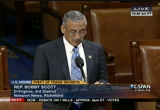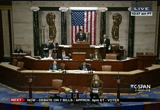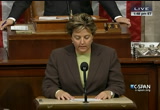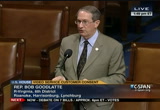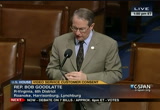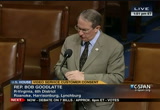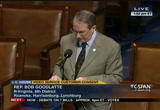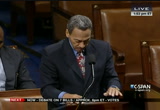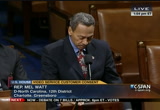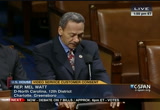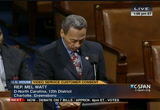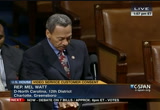tv Public Affairs CSPAN December 18, 2012 1:00pm-4:59pm EST
1:00 pm
and this bill requires that review. it requires that strategy. it will kick the bureaucracy into gear and it enjoys strong bipartisan support. i urge its passage. this is an issue that the house foreign affairs committee looks forward to continuing our oversight and work on in the 113th congress and i really commend the chairwoman and mr. duncan for their work. thank you. . the speaker pro tempore: the gentleman yield back. the gentlelady from florida. ms. ros-lehtinen: thank you, mr. speaker. we have no further requests for time and we yield back the balance of our time. the speaker pro tempore: the gentlelady yields back. the question is will the house suspend the rules and concur in the senate amendment to h.r. 3783. so many as are in favor say aye. any opposed say no -- the gentleman from -- >> on that i request the yeas and nays. the speaker pro tempore: the yeas and nays are requested. all those in favor of taking this vote by the yeas and nays will rise and remain standing.
1:01 pm
1:02 pm
the speaker pro tempore: for what purpose does the gentleman from texas seek recognition? mr. smith: i move the house suspend the rules and pass h.r. 6621, to correct and improve certain provisions of the leahy-smith america invents act, and tighted 35, united states code, as amended. the speaker pro tempore: the clerk will report the title of the bill. the clerk: h.r. 6621, a bill to correct and improve certain provisions of the leahy-smith america invents act and title 35, united states code. the speaker pro tempore: pursuant to the rule, the gentleman from texas, mr. smith, and the gentleman from michigan, mr. conyers, each will control 20 minutes. the chair now recognizes the gentleman from texas. mr. smith: mr. speaker, i ask unanimous consent that all members may have five legislative days to revise and extend their remarks and include extraneous material on h.r. 6621
1:03 pm
as amended, currently under consideration. the speaker pro tempore: without objection. mr. smith: mr. speaker, i yield myself such time as i may consume. the speaker pro tempore: the gentleman is recognized. mr. smith: mr. speaker, the lay lee-smith american invents america, or aia, was signed into law on december 16, 2011. it was the first major patent reform bill in over 60 years and most substantial reform of u.s. patent law since the 1836 patent act. the lay lee-smith a.i.a. re-establishes the united states patent system as a global standard. over the past year the patent office has worked diligently to implement the provisions of the act to ensure the bill realizes its full potential to promote innovation and create jobs. the bill that we consider today includes several technical corrections and improvements that ensure that the implementation of the bill can proceed efficiently and effectively. the bill is supported by all sectors of our economy from across the united states, including manufacturers, university, technology, pharmaceutical, and biotech
1:04 pm
companies and innovators. i have also received letters in support from the coalition for 21st century patent reform which represents manufacturers, pharmaceutical, technology, defense companies, and universities. the innovation alliance which represents high-tech companies and license sure, and the b.s.a., the software alliance which represents a range of high technology and software companies. the leahy-smith a.i.a. fundamentally changes our nation's innovation infrastructure. with any wide ranging legislation unforeseen issues may arise as implementation occurs. h.r. 6621 corrects many of these issues. this package consists of several technical corrections to the a.i.a. that are essential to the effective implementation of the bill. other technical corrections and improvements may arise in the future, for example, the issues surrounding the correction of the post grant review provision in the leahy-smith a.i.a. this was the result of an
1:05 pm
inadvertent scrinlers error, and err are made by legislative counsel. that technical error has resulted in a provision with a higher threshold than intended by either house of congress. additionally, we must remain watchful as we examine ways to deal with the abusive and frivolous litigation that american innovators face from patent assertion entities or patent trolls. as the provisions of the leahy-smith a.i.a. continue to take effect, our nation's innovation infrastructure becomes much stronger, unleashing the full potential of american innovators and job creators. mr. speaker, i ask unanimous consent to place the balance of my remarks in the record, i urge my colleagues to support this bill, i reserve the balance of my time. the speaker pro tempore: without objection. the gentleman from texas reserves. the gentleman from michigan is recognized. mr. conyers: mr. speaker, i yield myself as much time as i may consume. the speaker pro tempore: the gentleman is recognized. mr. conyers: members of the house, i rise in support as well of h.r. 6621, because it's a
1:06 pm
measure that improves the america invents act, the most significant reform to patent law since 1952. and was signed by president obama last year. as many of my colleagues recall, i had concerns about the act as to whether it would benefit large multinationals at the expense of independent inventors, and thereby harm job creation in our nation. for this reason i oppose the version of the patent bill that was considered by the house last year. but given the fact that this bill is now law, our focus should be on how it can be improved. that's why i supported -- support it presently because it accomplishes that very goal in several respects.
1:07 pm
to begin with, this measure -- this law clarifies the advice of counsel section applies to similar actions commenced on or after the date of this legislation's enactment. why is that important? well, pause the america invents act created a new section that prevents use of evidence of an accused fringer's failure to obtain advice of counsel or his failure to wave -- waive privilege and introduce such opinion. to prove either willfulness or intent to induce infringement. this provision, however, failed to specify when the new authority would go into effect. and it makes another series of
1:08 pm
other technical clarifications to the act. in addition, we find that this bill is necessary and has made the necessary commonsense technical corrections including any substantive revision to the act. so it's my hope that the judiciary committee will continue its oversight of the act into the next congress and consider ways in which it can be further improved. i commend the chairman of the committee for his -- this bill forward and i urge my colleagues
1:09 pm
to pass this legislation and i reserve the balance of my time. the speaker pro tempore: the gentleman from michigan reserves. the gentleman from texas is recognized. mr. smith: i yield two minutes to the gentleman from california, mr. rohrabacher. the speaker pro tempore: the gentleman from california is recognized for two minutes. mr. rohrabacher: thank you very much. i rise in strong opposition to h.r. 6621. the bill being considered promotes and is being promoted as a technical corrections piece of legislation and by and large that's exactly what it is. but it also -- there's one provision of this bill that raises significant concerns and needs to be addressed, and i have asked my friend from michigan, perhaps, to consider this and perhaps reconsider his position on the bill, because i'm sure he does not know about this. one of our country's patent -- our country's patent system has long been one of the strongest in the world, and one of its basic tenets has been the steadfast adherence to the principle of total
1:10 pm
confidentiality of a patent application until the patent is granted. the congress has repeatedly stood by that principle even though there have been many powerful forces in this country trying to eliminate that concept, but we have stood by this principle that these applicants should have confidentiality as their application works its way through the patent system. it prevents the big guys with money and power from attacking and neutralizing the little guys with genius but few resources. h.r. 6621 threatens to disrupt this long-standing practice and principle by requiring that the united states patent and trademark office to submit a report to congress on certainty patent application sections. this report has mandated by this bill will include information about the applications that have been traditionally kept confidential, including the name of the inventor, which has
1:11 pm
always been confidential to prevent these inventors from attack by very powerful interests who would steal their invention. the technical contents of the applications would be most likely not included in the report, this legislation requires the p.t.o. in their report to congress to report the names of the applicants-- i ask for an additional one minute. mr. smith: the gentleman is yielded an additional minute. mr. rohrabacher: to report the names so this bill -- in this report to have the names of the applicants and other identifying information that could be used by powerful outside groups. yes, read that. foreign and multinational corporations, to make these applicants potential targets even before their patent is granted. anonymity could easily be accomplished by a simple change to one section of this bill. perhaps the p.t.o. could create a unique identifier, for each
1:12 pm
applicant, so they could easily be tracked but without giving risk the public would know about this and be able to identify the inventors. we can make this a good bill. we need to take a couple words out that are -- one small section out of it because as the ranking member suggested does a lot of good, but it does a lot of harm, much more harm unless we take this out of the bill. i would ask my colleagues to oppose this legislation, until it's perfected and so we are not going to hurt the little inventors and hurt our country's ability and technology front by trying to make a few technical corrections to the way the patent office does its job. thank you very much. the speaker pro tempore: the gentleman's time has expired. the gentleman from michigan is recognized. mr. conyers: mr. speaker, i'm pleased to recognize the ranking member of our intellectual subcommittee, mel watt, of north carolina, and i yield him as much time as he may consume.
1:13 pm
the speaker pro tempore: the gentleman from north carolina is recognized. mr. watt: mr. speaker, i rise in support of h.r. 6621 as amended, and i ask unanimous consent to revise and extend my remarks. the speaker pro tempore: without objection. mr. watt: and -- having been granted that unanimous consent, i think i can submit substantially all of my statement into the record. however, i did want to acknowledge the outstanding stewardship of undersecretary of commerce for intellectual property and director of the patent and trademark office, david capos, and his remarkable staff for their tireless efforts both in getting patent reform across the finish line and in the timely implementation of its provisions and in connection with these amendments to the bill. the director has announced that he intends to leave the patent
1:14 pm
and trademark office in january. he will leave behind a long line of achievements and good will that were instrumental throughout this process, and he will leave behind a patent and trademark office that is much better respected and equipped to serve the important purpose of recognizing and protecting our important intellectual property than the office was before he arrived there. his successor no doubt will have some big shoes to fill and we wish director capos the best and all our best in all of his future endeavors. with that, mr. speaker, i will submit the balance of my statement for the record. yield back. the speaker pro tempore: the gentleman yields back. the gentleman from michigan reserves. the gentleman from texas is recognized. mr. smith: mr. speaker, i have no further speakers on this side and prepared to yield back the balance of my time. i'll reserve until the gentleman from michigan yields back. the speaker pro tempore: the gentleman from texas reserves. the gentleman from michigan is
1:15 pm
recognized. mr. conyers: mr. speaker, i'm pleased to return any time remaining on our side. the speaker pro tempore: the gentleman from michigan yields back all remaining time. the gentleman from texas. mr. smith: i yield back the balance of my time as well. the speaker pro tempore: the gentleman from texas yields back the balance of his time. the question is will the house suspend the rules and pass the bill h.r. 621, as amended. so many as are in favor say aye. those opposed, no. in the opinion of the chair, 2/3 of those voting having responded in the affirmative, the rules -- >> i ask for a recorded vote on this. the speaker pro tempore: the gentleman from california requests the yeas and nays. all those in favor of taking this vote by the yeas and nays will rise and remain standing until counted. a sufficient number having arisen, the yeas and nays are ordered. pursuant to clause 8 of rule 20, further proceedings on this motion will be postponed. .
1:16 pm
the speaker pro tempore: for what purpose does the gentleman from texas seek recognition? mr. smith: mr. speaker, i move that the house suspend the rules and pass h.r. 6014, the katie sepich enhanced d.n.a. act of 2011 as amended. the clerk: h.r. 6014, a bill to authorize the attorney general to award grants for states who implement minimum and enhanced d.n.a. collection processes. the speaker pro tempore: pursuant to the rule, the gentleman from texas, and the gentleman from north carolina -- and the gentleman from virginia, mr. scott, will each control 20 minutes. the chair now recognizes the gentleman from texas. mr. smith: mr. speaker, i ask unanimous consent that all members may have five
1:17 pm
legislative days within which to revise and extend their remarks and include extraneous materials on h.r. 6014 as amended, currently under consideration. the speaker pro tempore: without objection. mr. smith: mr. speaker, i yield myself such time as i may consume. the speaker pro tempore: the gentleman is recognized. mr. smith: mr. speaker, i thank the gentleman from california, mr. schiff, for sponsoring this commonsense, bipartisan legislation. h.r. 6014, the katie sepich enhanced d.n.a. collection act, allingt rises incentive grants to states that implement programs to collect d.n.a. samples from felony arrestees. d.n.a. arrestee programs provide an important law enforcement tool to identify the perpetrators of open and unsolved cases. d.n.a. arrestee programs can also prevent crimes by linking career criminals to crimes and locking them up before they have the chance to strike again. by collecting d.n.a. samples from arrestees and uploading them into the national d.n.a. databases, states can empower
1:18 pm
police and prosecutors to not only solve cold cases but also to apprehend violent criminals before most innocent people are victimized or precious lives are lost. similar legislation passed the house last congress by an overwhelming bipartisan vote of 357-32. h.r. 6014 adds a new purpose area to the d.n.a. analysis backlog elimination act to fund state d.n.a. arrestee programs. which is limited, cost-effective legislation that will help states make use of d.n.a. evidence to catch serious criminals at the earliest stage possible. in the 20th century, law enforcement used fingerprints to link criminals to unsolved crimes. in the 21st century, law enforcement can now use d.n.a. fingerprint technology to apprehend dangerous offenders. i want to thank my colleague from california again, mr. schiff, for his hard work on this issue. i urge my colleagues to support this legislation and i reserve
1:19 pm
the balance of my time. the speaker pro tempore: the gentleman from texas reserves. the gentleman from virginia is recognized. mr. scott: thank you, mr. speaker. i yield myself such time as i may consume. the speaker pro tempore: the gentleman is recognized. mr. scott: mr. speaker, the katie sepich enhanced d.n.a. collection act of 2012 or katie's law has laudable goals of helping to prevent violent crime, exonerating the innocent, giving police access to techniques, reducing the cost of criminal investigation and giving victims of violent crime and their families the answers and closure they deserve. all of this can result from the enhanced d.n.a. collection provided for in this bill. i voted for katie's law last congress and the goals of katie's law are goals that i wholeheartedly support. but unfortunately right now is not the time to pass the law. this bill would enable the attorney general to provide grant money to states if they implement a process for d.n.a. testing upon arrest and preservation of the d.n.a. profile. the last time i voted for the bill or one similar to it, i
1:20 pm
used a collection of arrestee d.n.a. as essentially the same from a constitutional point of view to the collection of fingerprints which are collected and preserved in the database for arrestees, whether there's a conviction or not. since then, however, serious questions have been raised about the constitutionality of arrestee d.n.a. collection and the preservation of that information in a database where there has been no subsequent conviction. these constitutional questions are currently before the supreme court in maryland v. king. the supreme court granted that case in november and we're taking this bill up now before the supreme court has had a chance to hear the case and issue its decision. in just a couple of months the supreme court will have decided the case and will know whether or not it's constitutional to preserve this data and how the states can collect it from people and what to do with that
1:21 pm
information. but the decision -- with the decision at hand, we can then craft a program that encourages states to implement d.n.a. collecting and testing systems that fully comply with whatever the supreme court rules in the king case and whereas i believe that the supreme court will find this proposed bill constitutional, it just makes sense that we wait until the decision is rendered before we pass the bill. for that reason i will oppose the bill and reserve the balance of my time. the speaker pro tempore: the gentleman from virginia reserves. the gentleman from texas is recognized. mr. smith: mr. speaker, i yield four minutes to the gentleman from colorado, mr. tipton, who happens to have passed legislation very similar to this when he was in the legislature in colorado. the speaker pro tempore: the gentleman from colorado is recognized for four minutes. mr. tipton: thank you, mr. speaker. and i'd like to thank the gentleman from texas for this time. i think it's important for us to understand the importance of this legislation and the opportunity that this literally presents for the protection of our wives and our daughters
1:22 pm
across this nation. i visited with janine sepich. her daughter, katie, literally had to fight for her life. and the only evidence after her body was discovered, raped and burned in a garbage dump, was the d.n.a. collected under those fingernails. but we now have the evidence that had katie's law been in place at that time, we could have saved an additional 13 lives. 1 women who were raped and murdered -- 1 women who were raped and murdered, -- 12 women who were raped and murdered, another who was pregnant with a child. that is the importance and the timeliness as well of moving forward with this legislation. in the state of colorado we have taken perpetrators off the street. in fact, one of the challenges that we don't often discuss is
1:23 pm
not just future events that potentially could happen, but bringing resolution to families who have lost a loved one. solving cold cases. in the state of colorado we've now had 398 people identified for past crimes. those unsolved murders that haunt families. this is a piece of legislation that's revenue-neutral for americans. a piece of legislation that's going to provide that opportunity for other states to do what colorado has been able to accomplish, to be able to pass legislation that is going to stand up, to be able to protect our daughters, our wives from vital predators, impacting families across this country. the time is now.
1:24 pm
it is of essence. we're approaching the 10th anniversary of the death of katie sepich. i would see no greater tribute to her, her mother and father and all families across this country than to move forward with this legislation, allow it to pass and to move forward and to be able to do the right thing . this legislation is designed so well that when we look at those identifiers, it is the 21st century fingerprint. you cannot tell the color of skin, we cannot tell the color of hair, it is just an identifier for who the person is. it's well thought out, it's important. i believe our daughters, our wives, our mothers count on this type of practical legislation. i urge its adoption. i thank the gentleman from texas and yield back.
1:25 pm
the speaker pro tempore: the gentleman yields back the balance of his time. the gentleman from virginia is recognized. mr. scott: mr. speaker, i yield such time as he may consume to the author of the bill, a former prosecutor and valued member of the house judiciary committee, the gentleman from california, mr. schiff. the speaker pro tempore: the gentleman from california is recognized. mr. schiff: i thank the gentleman for yielding and i rise in support of the katie sepich enhanced d.n.a. collection act. katie's law is named for katie sepich, a bright, vivacious 22-year-old from new mexico who was brutally assaulted, raped and murdered in 2003. police were able to extract the d.n.a. profile of her killer from underneath katie's fingernails. but they got no match in the offender database. when they finally did get a hit on the attacker's d.n.a. three years later they discovered that the murderer had been arrested repeatedly after 2003. but because he was never convicted, he was not required to submit a d.n.a. sample for the database. had the mexico -- had new mexico required arrestees to submit a d.n.a. sample, katie's killer would have been apprehended and
1:26 pm
taken off the street years earlier. katie's law applies in new mexico and now 24 states across the country have learned arrestee testing works. this bill would create a new category of grants for states that collect d.n.a. from arrestees for certain felonies, by joining the 25 states plus the federal government that already collect d.n.a. from arrestees, additional state participation will make the national d.n.a. index system more effective and help us solve violent crimes. it does so without authorizing any new spending and while protecting civil liberties by putting in place strong expungement requirements. we passed very similar legislation in 2010 with an overwhelming bipartisan majority . in the few short days we have left before the end of this years, -- year, we have a window to potentially send this bill to the senate where it also a tracted bipartisan support and i believe we should take that opportunity. it's been argued by my colleague that we should wait until the supreme court rules on maryland
1:27 pm
vs. king. i would simply note that three federal courts of appeals and the state supreme court of california have looked at arrestee testing and all have found it constitutional. the supreme court also took the unusual step of staying the order of the maryland court. chief justice roberts writes, quote, collecting d.n.a. from individuals arrested for violent felonies provides a valuable tool for investigating unsolved crimes and thereby helping to remove violent offenders from the general population. crimes of which d.n.a. evidence is implicated tend to be serious and serious crimes cause serious injuries. that maryland may not deploy a duly enacted statute to help prevent these injuries constitutes irreparable harm. this is a practice that is used in 25 states and by the federal government, it is not new. i'm confident the practice will be upheld by the court.
1:28 pm
and even if we are wrong, the court will decide this case long before any grant funding would be dedicated to help states build arrestee collection laws so, no funding would be wasted. i want to acknowledge my friend and colleague, chairman smith, who has been so supportive of this effort and has done such a marvelous job chairing the judiciary committee. i also want to acknowledge ranking member conyers and ranking member of the subcommittee, bobby scott, for their great work on the committee and subcommittee. and i also want to thank my colleague from washington, mr. reichert, who knows firsthand the power of d.n.a. evidence from his years as a sheriff. and finally and most importantly, katie's family and her mother. she has endured every parent's worst nightmare. her determination and dedication are inspiring and when katie's law is signed into law, and it will be, it will be a testament to her work and her love for her daughter. mr. speaker, i urge the house to pass katie's law and i yield back. the speaker pro tempore: the gentleman yields back the balance of his time.
1:29 pm
the gentleman from texas is recognized. mr. smith: mr. speaker, i yield four minutes to the gentleman from new mexico, mr. pearce. the speaker pro tempore: the gentleman from new mexico is recognized for four minutes. mr. pearce: i thank the gentleman from texas for yielding and i thank the gentleman from california, mr. schiff, for his leadership on this. i rise in strong support of h.r. 6014 today. katie sepich, her picture her here, tells us a lot. she was fun-loving, vibrant, outgoing. she was a leader in our age group. she made things happen. katie, beginning in january of 2002, was in her last year of grad school. during that year, in one of the last conversations with her daughter, her mom asked her daughter the same question that many of us receive from our parents. what are you going to do? when you graduate with your master's degree in business?
1:30 pm
the reply was the same one that many of us have given. i'm not sure. but i want to change the world. that's what each one of us as parents aspire to in our children. that's what each one of us try to train them for and katie was at the point of decision. she was on her way until her journey of life was brutally interrupted by someone who raped her and strangled her, then they burned her body and left her body abandoned at a dump site. now, there was a full d.n.a. sample under katie's fingjrn nails -- fingernails attesting to katie's character. but the uploaded d.n.a. did not match anything in the government database. . gabriel was arrested six weeks
1:31 pm
after the murder, but because new mexico or the government -- federal government had no laws, no d.n.a. sample was taken, so no match was made. three years mr. avilo walked free in the streets of america, the streets of new mexico after having committed this horrendous crime, but there was nothing to link them until new mexico passed a statute very similar to this one that we are passing today that simply said we are going to collect d.n.a. samples when we have people who are under suspicion of a violent crime. no different than my fingerprints are available to anyone who wants to look. they were taken by the u.s. government when i entered into the united states air force. so i understand the constitutional concerns, but i
1:32 pm
also understand the pain of families who have no answers. after new mexico passed this law, mr. avilo committed another violent crime and this time by new mexico law they had to take his d.n.a. sample and immediately they matched that now three-year-old crime that took katie's life. all this bill does is simply help provide funds to states to take these d.n.a. samples. the us us government will put them in the data base and -- the u.s. government will put them in the data base and compare them, the 21st century version of fingerprints, one in six american women are victims of rape or attempted rape. 90% of the people who commit the crimes are repeat offenders like mr. avila. yet they walk free because we care more for the rights of perpetrators than victims.
1:33 pm
this bill will not prevent violent crimes, but it will help stem the tide of the repeat offenders. dave and jan sepich, katie's parents, have worked tirelessly first to get the bill through new mexico and then to the federal government. the bill stands poised here on the floor of the house of representatives today asking that we -- 30 more seconds? asking that we as americans and we as legislators take a stand on behalf of the families who have young daughters and young sons that want to change the world and maybe, just maybe we'll do something right here. katie's legacy will live on no matter what we do here today because we are parents and because of her sacrifice.
1:34 pm
i humbly suggest we would want to pass this bill and yield back my time. the speaker pro tempore: the gentleman yields back. the gentleman from virginia is recognized. mr. scott: thank you, mr. speaker. mr. speaker, i yield such time as he may consume to the ranking member of the judiciary committee, mr. conyers. the speaker pro tempore: the gentleman from michigan is recognized. mr. con-- mr. conyers: thank you, mr. speaker, thank you ranking member scott. this is an unusual circumstance in which the fourth amendment which protects individual privacy from unreasonable searches and seizures by the government has not been hardly mentioned. and also another thing curious about this measure is that there hasn't been a hearing on the bill, not a single hearing.
1:35 pm
now, i suppose we should just skip over that -- by the way, the supreme court of the united states has a case testing the issue of the appropriateness of arrestees for collecting d.n.a., which will soon reasonably be decided. as one who supports the goals of this legislation, its objectives to apprehend offenders and provide relief to victims, it seems like in our haste we have tossed procedure into the
1:36 pm
wastebasket. i just can't understand why we can't examine the constitutionality of the practice of d.n.a. in an appropriate manner, and that's what maryland versus king would do. i know it's being used in other places, but i have never participated in legislation that attempts to become law while the matter is still in the supreme court about to be decided. maybe if i looked hard enough we could find some cases where that may have happened. when you combine all of these unusual circumstances, as a
1:37 pm
former chairman of the committee on the judiciary, i would urge that we follow the recommendations of our ranking member and have this matter brought before the committee in a more proper and orderly way. so i would like to submit my statement and hope that we can ensure the constitutionality of h.r. 6014 since that test is about to be submitted before the supreme court of the united states. le with that, mr. speaker, i yield back the balance of my time.
1:38 pm
the speaker pro tempore: the gentleman yields back. the gentleman from texas. mr. smith: i'd like once again to thank my friend and colleague from california, mr. schiff, for introducing this bill and for getting it to the point where we are now, hopefully on the cusp of passage. i yield back the balance of my time. the speaker pro tempore: the gentleman from texas yields back. the gentleman from virginia is recognized. mr. scott: i yield such time as he may consume to the gentleman from georgia, a member of the judiciary committee, mr. johnson. the speaker pro tempore: the gentleman from georgia is recognized. mr. johnson: thank you, mr. speaker. i rise in opposition to h.r. 6014, the katie sepich enhanced d.n.a. collection act of 2012. i strongly support measures to increase our public safety and the rational behind the bill is laudable. i care about using tennessee evidence in criminal prosecutions to solve crimes and convict wrongdoers, and also i appreciate the fact that d.n.a.
1:39 pm
can, many times, clear persons, even persons who have been wrongfully convicted. but there is much doubt, mr. speaker, surrounding whether or not d.n.a. collection of arrested persons is good policy let alone constitutional. by providing more incentives to extract d.n.a. at arrests, this bill promotes restrictions on civil liberties and restriction that is we do not and should not tolerate as a society. and it undermines the very criminal justice system it seeks to strengthen. unlike collecting the d.n.a. from a convicted felon, collecting d.n.a. samples during arrests violates the fourth amendment's protection against unreasonable searches and seizures. i sincerely doubt that the
1:40 pm
framers intended the fourth amendment to allow the state to hold a person's genetic blueprint without first finding that person guilty of a crime. and although the bill provides foreexpungement of d.n.a. -- for expungement of d.n.a. profiles it only does so after lengthy procedures taken by an innocent person. moreover, it does not address the physical d.n.a. samples that remain in stoverage--storage. we should not permit our government, mr. speaker, to hold d.n.a. samples of arrested persons forever, despite the fact that the arrestee was never convicted of a crime. to keep these d.n.a. samples under these circumstances is the essence of violating the arrested person's right to privacy. there can be no greater, no more
1:41 pm
fundamental right to privacy than that which exists in the d.n.a. profile of a person. one should not give up that right to privacy in one's d.n.a. profile simply because one has been arrested. not only is this inconsistent with our fundamental beliefs, but d.n.a. profiling of arrestees diverts resources away from d.n.a. profiles with far greater impact on aiding investigations. i'm also concerned that this practice will perpetuate the current racial disparatest -- disparities in our criminal swrusstiss system. as more minority d.n.a. profiles are included in data bases, more minorities are potential suspects regardless of their actual guilt. we cannot allow this injustice
1:42 pm
to blossom in a free country where people are presumed innocent until proven guilty. thank you, mr. speaker. i yield back the balance of my time. the speaker pro tempore: the gentleman yields back. the gentleman from virginia is recognized. mr. scott: thank you, mr. speaker. i think the chair has the right to close. i yield him time if he has any concluding comments. the speaker pro tempore: the gentleman from texas has yielded back. mr. scott: i can yield him time. we have no further questions. he apparently doesn't have any further comments. i yield back. the speaker pro tempore: the gentleman from virginia yields back. the question is, will the house suspend the rules and pass the bill h.r. 6014 as amended. so many as are in favor say aye. those opposed, no. in the opinion of the chair, 2/3 of those voting having responded in the affirmative, the rules are suspended, the bill is passed, and without objection the motion to reconsider is laid upon the table. without objection, the title is amended.
1:43 pm
for what purpose does the gentleman from texas seek recognition? mr. smith: mr. speaker, i move that the house suspend the rules and pass s. 3642, the theft of trade secrets clarification act of 2012. the speaker pro tempore: the clerk will report the title of the bill. the clerk: senate 3642, an act to clarify the scope of the espionage act of 1996. the speaker pro tempore: pursuant to the rule, the gentleman from texas, mr. smith, and the gentleman from michigan, mr. conyers, each will control 20 minutes. the chair recognizes gentleman from texas. mr. smith: i ask unanimous consent that all members may have five legislative days to revise and extend their remarks and include extraneous materials on s. 3642 currently under consideration. the speaker pro tempore: without objection. mr. smith: mr. speaker, i yield myself such time as i may consume. the speaker pro tempore: the gentleman is recognized. mr. smith: mr. speaker, s. 3642, the theft of trade secrets clarification act of 2012, clarifies the scope of the
1:44 pm
economic espionage act, eea, and protects american jobs and businesses from the theft of their valuable trade secrets. i want to thank senator leahy for his hard work on this piece of legislation. since 1996, the e.e.a. has served as the primary tool the federal government uses to protect secret valuable commercial information from theft. the second circuit's decision revealed a dangerous loophole that demands our attention. in response the senate unanimously passed s. 3642 in november. we need to act today to send this important measure directly to the president. we must also take action in response to the second circuit's call and assure we have appropriately adapted the scope of the e.e.a. to the digital age. i again thank senator leahy for his leadership on this issue. i urge my colleagues to support the bill. i reserve the balance of my time. the speaker pro tempore: the gentleman reserves the balance
1:45 pm
of his time. without objection, the gentleman from virginia controls the time. for what purpose does the gentleman from virginia rise? mr. scott: thank you, mr. speaker. i yield myself such time as i may consume. the speaker pro tempore: the gentleman is recognized. mr. scott: mr. speaker, s. 3642, the theft of trade secrets clarification act, would help ensure that american business can effectively protect their trade secrets. this legislation passed by the senate by unanimous consent last month and we are proud to be passing it today. . in thache year, the second circuit court of appeals held that the federal statute prohibiting the threat of of trait secrets does not apply to computer source code in some secrets. in the case, the defendant, a computer programmer that worked for goldman sachs, electronically copied and remotely stored thousands of lines of source code from the company's internal high-frequency trading system, then downloaded that code on his new employer server after
1:46 pm
leaving goldman sachs. the transfer of the source code could potentially save up to $10 million and two years of programmer's time for the new employer and would eliminate some of the competitive advantages goldman sachs achieved by developing their own trading program. federal law prohibits conversion of any trade secret that is related to or included in a product that is produced or placed in interstate or foreign commerce. because the code that was stolen is a component of an internal computer system, the court found that it is not covered by the statute because it was not produced for or placed in a product. in interstate or foreign commerce. this bill will close the gap exposed in that case by clarifying that the statute applies to both products and services which are used in or intended to be used in interstate or foreign commerce. congress needs to act quickly tone chance the ability of american businesses to safeguard the proprietary information they developed to gain a competitive
1:47 pm
advantage. this is particularly important in our country's service-based economy. we must ensure that our statutes, designed to prosecute hint the theft of trade secrets, appropriately cover the range of intellectual property generated and used by our businesss. this bill is an important step to accomplish this goal and i commend the senior senator from vermont, the chair of the judiciary committee in the senate, mr. leahy, for his leadership on the bill and i urge my colleagues to support this legislation so it can be sent directly to the president's desk to be signed into law. i yield back the balance of my time. the speaker pro tempore: the gentleman from virginia yields back. the gentleman from texas is recognized. mr. smith: mr. speaker, i yield back the balance of my time as well. the speaker pro tempore: the gentleman from texas yields back the balance of his time. the question is will the house suspend the rules and pass senate bill 3642. those in favor say aye. those opposed, no. in the opinion of the chair, 2/3 of those voting having responded
1:48 pm
in the affirmative, the -- mr. scott: mr. speaker. the speaker pro tempore: the gentleman from virginia. mr. scott: on that i ask for the yeas and nays. the speaker pro tempore: the yeas and nays are requested. all those in favor of taking this vote by the yeas and nays will rise and remain standing until counted. a sufficient number having arisen, the yeas and nays are ordered. pursuant to clause 8 of rule 20 further proceedings on this motion will be postponed. for what purpose does the gentleman from virginia seek recognition? >> mr. speaker, i move that the house suspend the rules and pass h.r. 6671, to amend section 2710 of title 18, united states code, to clarify that a videotape service provider may obtain a consumer's informed written consent on an ongoing basis and that consent may be obtained through the internet. the speaker pro tempore: the clerk will report the title of the bill. the clerk: h.r. 6671, a bill to amend section 2710 of title 18, united states code, to clarify that a videotape service provider may obtain a consumer's informed, written consent on an ongoing basis and that consent
1:49 pm
may be obtained through the internet. the speaker pro tempore: pursuant to the rule, the gentleman from virginia, mr. goodlatte, and the gentleman from north carolina, mr. watt, each will control 20 minutes. the chair now recognizes the gentleman from virginia. mr. goodlatte: mr. speaker, i ask unanimous consent that all members may have five legislative days within which to revise and extend their remarks and include extraneous materials on h.r. 6771, including -- currently under consideration. the speaker pro tempore: without objection. mr. goodlatte: mr. speaker, i yield myself such time as i may consume. the speaker pro tempore: the gentleman is recognized. mr. goodlatte: today i am pleased that we are considering a bipartisan bill to update the video privacy protection act of 1988. this bill will ensure that a law related to the handling of videotape rental information is updated to reflect the realities of the 21st century. the vppa was passed by congress in the wake of judge robert bork's 1987 supreme court nomination battle, during which a local washington, d.c.,
1:50 pm
newspaper obtained a list of videotapes the bork family rented from its neighborhood videotape rental store. this disclosure caused bipartisan outrage which resulted in the enactment of the video privacy protection act. the commercial video distribution landscape has changed dramatically since 1988. back then the primary consumer consumption of commercial video content occurred through the sale or rental of prerecorded video cassette tapeless. this required users to travel to their local video rental store to pick a movie. afterward consumers had to travel back to the store to return the rented movie. movies that consumers rented and enjoy were recommended to friends, primarily through face-to-face conversations. with today's technology, consumers can quickly and efficiently access video programming through a variety of platforms, including through internet protocol-based video services, all without leaving their homeless. this bill is extremely similar
1:51 pm
to h.r. 2417, which passed the house overwhelmingly a year ago. this newer version incorporates provisions suggested by the senate that allows greater consumer flexibility in their video-sharing habits. i support these enhancements to the bill. this bill updates the video privacy protection act to allow videotape service providers to facilitate the sharing on social media networks of the movies watched or recommended by users. specifically it is narrowly crafted to preserve the vppa's protections for consumers' privacy while modernizing the law to empower consumers to do more with their video consumption preferences, including sharing names of new or favorite tv shows or movies on social media in a simpler way. however, it protects the consumers' control over the information by requiring consumer consent before any of this occurs and it makes clear
1:52 pm
that a consumer can opt in to the ongoing sharing of his or her favorite movies or tv's without -- tv shows without having to provide consent each and every time a movie is rented. it also makes clear that written, affirmative consent can be provided through the internet and can be withdrawn at any time. the bill we are considering today requires that the consent be distinct and separate from any other form, setting forth other legal and financial obligations. companies must provide consumers with the clear and conspicuous option to withdraw their consent to share at any time. finally a consumer's consent to share expires after 24 months, unless the consumer chooses to opt in again. this bill is truly pro-consumer and places the decision of whether or not to share video rentals with one's friends squarely in the hands of the consumer. in fact, the co-chairs of the
1:53 pm
future of privacy forum correctly pointed out in an opinion piece in roll call on november 29, 2011, that, quote, the antiquated law on the books is a hindrance to consumers, end quote. this legislation does not change the scope of who is covered by the vppa or the definition of personally identifiable information. in addition, it preserves the requirement that the user provide affirmative written consent. it's time that congress updates the vppa to keep up with today's technology and the consumer marketplace. this bill does just that. i hope my colleagues will join me in supporting this important piece of legislation and i reserve the balance of my time. the speaker pro tempore: the gentleman reserves. the gentleman from north carolina is recognized. mr. watt: mr. speaker, i yield myself as much time as i may consume. the speaker pro tempore: the gentleman is recognized. mr. watt: mr. speaker, i rise in support of h.r. 6671. last year when i came to the floor to oppose the predecessor
1:54 pm
bill to this legislation, which we in the house passed and sent to the senate, but today i rise to support the amendments to the video privacy protection act contained in the bill because of important amendments to the bill that have been made in the senate. i said when we debated the bill before, and i say now, that while i support innovation on the web, i do not support it at the expense of consumer privacy. i believe the senate amendments make for a strong bill with more robust consumer protections and respond in many respects to the concerns i raised about the prior bill. the video privacy protection act was passed in reaction to the unauthorized release of judge robert bork's rental history during his contentious
1:55 pm
confirmation hearings to the supreme court and stands today as the gold standard for privacy protection. the amendments made by this bill would allow a video service provider to obtain universal, ongoing electronic consent from consumers to share their viewing history across social media, like facebook. the consumer would have to affirmatively opt in and the service must provide a clear and conspicuous opportunity to withdraw the consent to share video viewing information at any time. finally, advanced consent may be valid for no longer than two years. mr. speaker, i'm satisfied that the amendments made in the senate, before which i testified in opposition to the original bill, have adequately addressed the privacy-related concerns i
1:56 pm
expressed. opt in consent is widely regarded by privacy advocates as a vigorous protection for consumers. the requirement that the consumer must revisit the decision to share his video history reinforces the protections provided in the initial consent and, finally, the bill now allows what i suggested during the judiciary committee markup in the house, that the consumer be provided the option to give consent on a video-by-video basis, or in advance for all views until that consent is withdrawn or until the expansion -- expiration of 24 months. because of these important changes, i support the chairman in his effort to assist online companies to initiate creative options on behalf of their subscribers. while these are welcome
1:57 pm
improvements that allow me to support this bill, i remain concerned that the bill fails to provide needed updates to the video privacy protection act. in particular, and fails to consider implications for the ongoing national debate on privacy laws governing digital privacy. i continue to believe that the underlying video privacy protection act must be updated to address destruction of records in the online environment. also the damages provision should be updated to ensure that consumers are adequately compensated when harmed and that online companies are not unfairly penalized because of the reach of their meeting. finally, i firmly believe that the provision in the video privacy protection act, that requires a warrant for law enforcement to obtain consumer records, must be preserved and
1:58 pm
that future debates on electronic consumer privacy reforms must not undercut those protections. i understand that the incoming chair of the judiciary, my good friend, mr. goodlatte, agrees with most of these observations and will work with me to ensure that the judiciary committee next year trieto as they are concerns about what is not in the bill. so i'm agreeing not to allow the perfect to be the enemy of the good. i therefore ask my colleagues to join me in supporting the bill, but i also ask them to join me in the next term of congress to protect consumer privacy and to update the outdated provisions of the video privacy protection act. i reserve the balance of my time. the speaker pro tempore: the gentleman reserves. the gentleman from virginia is recognized. mr. goodlatte: madam chairman, madam speaker, i yield myself such time as i may consume to
1:59 pm
thank both the ranking member, the gentleman from michigan, mr. conyers, for his longtime support, as well as the gentlewoman from california, ms. lofgren, whom i'm sure will have a word to say about this as well, and also the work that the gentleman from north carolina, the ranking member of the subcommittee that i chair, and he has done a good job as ranking member on, for working with us to find ground here that we could reach agreement upon. i will also say that i have a great interest in looking at the electronic communications privacy act and other privacy issues that need to be reviewed and modernized and hope that in my new capacity as chairman of the judiciary committee in the next congress we'll have an opportunity to work together on issues of that nature. and i reserve the balance of my time. the speaker pro tempore: the gentleman reserves. the gentleman from north carolina is recognized. mr. watt: madam speaker, i yield as much time as he may consume to the chairman -- to the ranking member of the judiciary
2:00 pm
committee, mr. conyers. the speaker pro tempore: the gentleman is recognized. . mr. conyers: thank you, i'd like to let everyone know that the gentleman from north carolina who's worked on this and has pledged to continue to work on it has my support for the new ideas -- they are not new, they are old ideas that just didn't get into this bill and we are going to work on it together. and i congratulate of course, the chairman-elect of the judiciary committee, mr. goodlatte, for his long work and service on that committee and look forward to joining with him to continue the kind of
2:01 pm
bipartisanship that frequently is worked out in our committee. i believe this amended version of h.r. 6671 is a distinct improvement over its predecessor, and urge that we continue the kind of vigilence that the gentleman from north carolina, mel watt, has demonstrated in his zeal to protect consumer privacy. technology is constantly evolving and each new development presents new opportunities to improve our lives and challenges. this bill is a good step toward addressing this technological development, and we must continue to monitor to ensure
2:02 pm
consumer privacy continues to be protected. the language added by the senate, the other body, improved the bill for consumers and so i, too, urge my colleagues to support its passage today. i thank my colleagues and i yield back the balance of my time. the speaker pro tempore: the gentleman reserves. the gentleman from virginia is recognized. >> madam speaker, i yield as much time as she may consume to a valued member of our intellectual subcommittee and valued member of the judiciary committee, the gentlelady from california, ms. lofgren. ms. lofgren: i thank you, mr. watt. the speaker pro tempore: the gentlelady is recognized. ms. lofgren: i am pleased we have come together to support this good bill. this bill is going to allow
2:03 pm
consumers to share their video viewing habits as they see fit, and it will actually enhance consumer privacy without causing any significant detriment to providers of digital services. i agree that the senate amendments actually improve the bill, and i think also passing this bill is going to support and enhance emerging online video companies to grow and expand their services. i think it's important that we come together to make sure that our laws actually work well in the internet environment, which this bill now does, and i look forward to congress working to do the same thing when it comes to the electronic privacy act reforms we know are necessary, even copyright reform, to make
2:04 pm
sure that the laws actually work with modern internet services. vppa is a great start down this road. i look forward to voting in favor of it. i commend all who worked on it and yield back the balance of my time. the speaker pro tempore: the gentleman from north carolina is recognized. mr. watt: madam speaker, i urge my colleagues to join us in supporting the bill and working with us next year to address the things that are not in the bill. i yield back the balance of my time. the speaker pro tempore: the gentleman yields back the balance of his time. the gentleman from virginia is recognized. mr. goodlatte: i thank my colleagues for the coming together on this legislation and i believe that it is very good legislation which modernizes the use of the internet and the use of information that people want to share with each other. it makes it feasible to do that now in ways that newer users of the internet have become used to with music and other things that they share, and now they'll be
2:05 pm
able to do that with video, television, and movies, and other things like that. i urge my colleagues to support this legislation. i yield back the balance of my time. the speaker pro tempore: the gentleman yields back. the question is, will the house suspend the rules and pass the bill h.r. 6671. so many as are in favor say aye. those opposed, no. in the opinion of the chair, 2/3 of those voting having responded in the affirmative, the rules are suspended, the bill is passed, and without objection the motion to reconsider is laid upon the table. pursuant to clause 12-a of rule 1rk the house will stand in recess subject to the call of
2:09 pm
solve the problem on the spending issue here in washington. the president is not yet there. he has not come to where he needs to be in order for us to push through a bill that really does begin to address the problem. and as the speaker said, that's why we are now discussing an alternative plan if the president and the white house cannot come our way. thank you. >> as the speaker and the leader said, we've been trying to make sure we do not go off this fiscal cliff. while at the same time put america on a different path. one for job creation. one that takes care of our spending. i think many times the speaker felt that maybe he was negotiating with himself. after plan after plan where the president stayed silent. those three weeks right after the election when the first idea was sent across from the speaker, we heard nothing but
2:10 pm
silence. unfortunately today we're going to have to go to plan b. because we want to make sure we do not go off the cliff and we want to make sure we can keep an economy where jobs can be created. but the thing we have to remember is where we are in this situation. we are two months into a new fiscal year. you should always look at the number because it will tell you the scenario where you are. in those two months we are $292 billion in debt. when you read the numbers, there are some positive news in it. revenues are up by 10%. $30 billion. that's $1 billion less than if you raised the top two rates for the first two years. but the sad reality is spending is up 16%. $87 billion. that's where the problem lies. that's where the president has to start talking about and that's what we want to solve in the long run. an america for the children and
2:11 pm
future we can build and one that can create jobs. >> the clock continues to tick and we're just days now from the end of the year. and i think that the best christmas gift that we can give america is an agreement, an agreement that gives certainty to our hardworking middle-class families as far as to what their tax rates are going to be, give certainty to our small business owners so that they can hire and they can innovation and that proves to the american people that we can lead and we can get our job done. that's the best christmas gift and i am confident we can get it done. this is our moment and this our moment to do what's right for america and we ask the president to join us in that effort. >> republicans really have gone above and beyond to work with the president and democrats to negotiate this deal. and neither side is going to
2:12 pm
get everything that we want, that americans can no longer afford to have our cake and eat it too. today our national debt is growing faster than our economy. at the end of the decade, the vast majority of our tax revenue will be eaten up by medicare, medicaid, social security and the interest on our debt. that means 1/3 of our federal debt which is spent on transportation, education, even our national security will have to be spent with borrowed money. at no time has the president offered or even supported a plan that would meaningfully address our long-term spending problem. higher taxes isn't going to solve this problem and we can't afford for the american people to keep struggling. spending cuts are not easy, but they are certainly what is required at this time. it's time for the president to meet us halfway. americans deserve a solution.
2:13 pm
>> what is your definition of a balanced deal? does it have to be dollar for dollar? >> most people would agree that's balanced. >> can it just be close to that or does it have to be exactly that? >> we do not have a balanced plan when the president is calling for $1.3 trillion in revenue and only willing to put $850 billion worth of cuts over 10 years. >> speaker boehner, obviously the nation is still in mourning. what type of affect has the tragedy had on the fiscal cliff caused? obviously you and president obama spoke on friday. you spoke on monday. is there a realization that the country, the last thing they want to see is a long drawn out partisan battle during this period of time? >> i think both sides would agree. this is a difficult time for americans. that's why while we continue to have conversations with the white house, continue to have
2:14 pm
hope we can reach an agreement. it's not a time to put americans through more stress. >> mr. speaker, what would plan b be for sequestration, the cuts that will automatically, the doc fix going away, medical benefits going away, would you incorporate any of that into this plan b negotiation? >> we will continue to look at how we address these issues as we put this bill tooth that we expect to be on the floor later this week. but dealing with the issue of the alternative minimum tax, dealing with the death tax could likely be part of the bill that we'd bring to the floor. we would not deal with the sequester. >> how close would you say the president's plan is to being balanced? can you get an agreement within the next 24 to 48 hours?
2:15 pm
>> i have made it clear to the president that i would put $1 trillion worth of revenue on the table if he were willing to put $1 trillion of spending reductions on the table. that at this point would be my version of a balanced approach as he called for it. andrew, last one. >> mr. speaker, how adamant are you that the medicare eligibility age needs to be part of this? there are a lot of people who thinkes that -- think that's just an arbitrary cut and that other sectors of the economy would have to eat that. >> there are a lot of issues on the table. that issue's been on the table, off the table, back on the table. it's an issue for discussion. but i don't believe it's an issue that has to be dealt with between now and the end of the year. it is an issue i think if congress were to do entitlement reform next year and tax reform as we envision if there is an agreement, that issue will certainly be open to debate in that context. thanks.
2:16 pm
cappingscamings [captions copyright national cable satellite corp. 2012] [captioning performed by national captioning institute] >> eric of "the hill" joins us from capitol hill with the latest on the fiscal cliff. how did the white house react to speaker boehner's plan b? >> the white house very swiftly rejected it in a statement very shortly after boehner announced the plan b scenario? and harry reid, leader of the senate, simply rejected it saying this does not raise enough revenue to create a balanced deal?
2:17 pm
the wealthy paying their fair share and the budget's not being balanced on the backs of seniors and the poor. >> well, compare what the speaker has offered, this plan b, with what the latest offer from the white house is. >> well, that's right. president obama initially was looking for $1.6 trillion in new tax revenue, and much of that came from allowing the current tax rates to expire for those making more than $250,000 a year. he has since lowered that to $1.2 trillion in revenue by the white house math and that's largely from changing threshold to $400,000. those making $400,000 and above would see a tax increase. speaker boehner is talking about a $1 million threshold. and interestingly, that's a threshold that many senate and house democrats in the past have supported. nancy pelosi from san francisco, senator charles shumer, the chief messaging man
2:18 pm
in the senate, democratics caucus, have supported that threshold. people from wealthier districts and states -- in states tend to see the middle class differently than from other areas where cost of living is lower. >> that strategy, that support, rather, part of speaker boehner's strategy knowing he has built in support from senators and others? >> i don't know if i would call it built in support but it certainly causes a controversy or a possible split among the democrats. so it is an interesting tactic, a great chess move probably. but the thing is how many republicans consider boehner get onboard. we covered the caucus meeting -- conference meeting, rather, this morning in the capitol basement and i'd say members are kind of dazed and confused about this plan. many are looking for details. hardcore conservatives immediately rejecting it. people close to leadership voicing support. they called an emergency meeting at 5:00 p.m. today, the whole conference, to discuss
2:19 pm
details and try to advance their operation. of course if this failed, democrats all against it and the bill went down, it could be a very interesting scenario for speaker boehner. something he's trying to avoid. >> assuming it passes, the 5:00 p.m. meeting, wheags ahead for this plan b? it could likely become a bill. >> that's right. the three-day rule in the house which under the interpretation that they've been using, they need to get it online by tonight and then they can have a vote on thursday. and that would allow, you know, it's already going to piggyback on a senate-passed bill so it could go to the senate, avoid a motion to proceed and program we can see votes in the senate. speaker boehner said he's open to negotiations with the president on obama's latest offer. chiefly, they're looking for a larger health care spending cuts and, again, some more movement on the tax rates.
2:20 pm
so a deal could come together in the next hours or days. >> and as far as you know, those negotiations off the floor and behind the scenes are still continuing? >> that's right. they seem to be. >> erik wasson covering the fiscal cliff debate on the capitol hill. read his work on "the hill" and follow him on elwasson. >> we are live on the senate side outside the senate waiting to hear from republican and democratic leaders after their party launches and we certainly will likely -- lunches and we certainly will hear the fiscal cliff negotiations. a number of reporters gathered. again that plan b offered earlier today by speaker boehner.
2:21 pm
>> i can remember, i see all this stuff in the cameras. i was a new senator, and alan simpson and i served on the same committee and he had a rule of thumb. it wasn't an important meeting unless there were six cameras there. three, four -- this is an important enough meeting to mess with. only four. ok. now it's time for leerm. and we can't continue to kick the can down the road. that's happened far too long. forging a compromise requires both sides to make tough choice s. house republicans are threatening to abandon serious negotiations. i'm sorry to say this is a pattern we've seen time and time again.
2:22 pm
conrad, great legs. bowles-simpson, two rounds of boehner-obama talks. biden-cantor, gang of six, gang of eight, supercommittee. every time we get down to doing something for the long-term financial security of this country, they take that football and it's a charlie brown episode. they jerk the ball away. this is what they're doing again. republicans have walked away from serious negotiations we've held for the past 3 1/2 years. as soon as president obama was elected, we started talking about the need to do something with the long-term financial security of this country. compromising takes courage. walking away as they have done is so easy, but there's a small but vocal minority pulling the strings in the republican caucus in the house. the tea party's agenda could not be further from the
2:23 pm
priorities of middle-class americans. yet, whenever the time comes between the republicans to choose between the tea party and the american people, the tea party wins and the american people lose. americans are clear what they want. democrats, republicans, independents, more than 60% of republicans believe that the rich should pay more. they want a balanced plan that combines smart spending cuts with asking the wealthiest americans to pay their fair share. they want us to protect the middle class from having a $2,200 tax increase come january 1. speaker boehner's proposal is not balanced. will not protect the middle class because it can't pass the senate. and it doesn't do anything. his so-called plan b is allowing people who make up to
2:24 pm
$1 million to not pay more. we believe people making less than $250,000 shouldn't have to bear the burden of all these huge problems we have fiscally. we should be focusing our energy on forging a large-scale balanced approach to deficit reduction, but if republicans choose to walk away again, again, the senate bill is the only plan that will protect the middle-class families from a tax hike on january 1. >> the recent tragedy, what gun control measures would you support going forward? >> i have given statements on this before. i watched every word and i watched the prayers, i watched everything that took place in connecticut sunday night. no one can erase evil but we need to accept the reality that we're not doing enough to protect our citizens.
2:25 pm
i'm very happy that the president's going to do everything he can administratively. we must engage in a thoughtful debate how to change laws and culture that allows violence not continue to grow. every idea should be on the table as we discuss how best to keep our children safe. >> [inaudible] >> no, i've been very clear here. i think we have to have a full discussion. >> [inaudible] >> the president has made an overture to the speaker. as we talked about in our caucus today, we hoped to get something affirmative from the republicans. to this they have walked away and not been affirmative. i admire and appreciate very much the president showing the american people how reasonable he's trying to be. significant tax increases,
2:26 pm
significant cuts. >> would you personally support the reindexes of social security? -- reindexing of social security? >> this is not going to be a situation where we'll vote on a particular provision in the bill. it's going to be a framework to do something about the long-term security of this country. >> [inaudible] >> well, if they -- plan b, as i understand it, plan b calls for sending us a bill that the only thing will be in it is raising taxes on people who make over $1 million. if that's not walking away i don't know what walking away is. i was happy to see the last statement in boehner's latest press foray where he said negotiations are not closed. i talked to the president a quarter of 1:00 today, he
2:27 pm
hasn't heard a word from boehner today. >> the senate family yesterday, senator inouye's passing, has your caucus addressed the reshuffling of chairmanships? >> yes, we have addressed what will happen with senator inouye's death. that will be finalized tomorrow. >> senator schumer in the past supported a threshold of $1 million. why was he wrong to do that? >> well, because in the context of where he -- the idea of boxer and senator schumer has advocated for that. remember at that time what we're trying to do is come up with something to stimulate the economy. and you'll remember at that time the president took all that away from us when he recommended and advocated that we would just continue all the
2:28 pm
tax cuts. that came up entirely different context than now. everyone should understand boehner's proposal will not pass the senate. >> even as a last ditch, senator reid? >> not as a last ditch. the most pronounced statement we had in the caucus today was from jon tester and everyone clapped when he finished. we're not going there. that would be so unfair and it does nothing to address the problems we have in the country with the debt. we thought that's what the republicans -- that was their number one thing, they wanted to do something about the debt. obviously this is not serious if this is their proposal. >> senator reid [inaudible] >> the question if he sends it over will we amend it. we'll see what he sends us. the plan b is just as i told you. if he sends that over we have a number of different alternatives. i met with my staff and the
2:29 pm
parliamentarian. there are several ways we can move forward. thank you, everybody. >> here on c-span staying live just outside the senate in the ohio clock corridor. we're expecting to hear from senate republican leaders. we just heard from sflort leader harry reid. the senate is in this afternoon. tribute speeches continue to the late senator daniel inouye of hawaii who died yesterday at the age of 88. and related to that today, as well, senator pat leahy was sworn in as the new president
2:30 pm
pro tempore of the united states senate. that happened earlier today. vice president biden administering the oath. >> well, good afternoon, everyone. the entire congress is united and condemning the violence in newtown, and on the need to enforce our laws. as we continue to learn the facts, congress will examine whether there is an appropriate and constitutional response that would better protect our citizens. with regard to the year end tax
2:31 pm
issue, i would remind everyone that in the summer of 2010 senator schumer said, quote, first i don't know a single one of my colleagues who wouldn't prefer to do tax breaks for people up to $1 million. it's my understanding that that is essentially the proposal that the house of representatives is likely to send over to us later in the week. >> well, i think the other thing that's getting lost in the whole debate about the fiscal cliff is where are the savings, where are the spending cuts. the president has talked about a balanced plan, but as they've tried to negotiate with speaker boehner and the house leadership, it continues to focus on one issue and that is how much are we going to raise taxes on small businesses which is, as we said before, a terrible idea in a weak economy because you got an awful lot of
2:32 pm
middle-class americans who work for the very small businesses that are going to see their tax bills increase. we believe, the american people i think support this, you look at a lot of polls. there was a george washington political poll that said about 2/3 of americans believe that you ought to cut spending across the board. there was a fox news poll last week out that said 61% of americans believe there have to be major spending reductions in any kind of a fiscal cliff deal. and so what we continue to see from the white house is the very thing that would hurt the economy, hurt jobs which ultimately is what we all want to see happen is to see the economy grow and expand again. and he has no interest whatsoever in dealing with the entitlement programs. so we need spending solutions. that's where the president has been absent. we hope that he'll come to the table and engage on what we can do to rein in out-of-control federal spending, to reform our entitlement programs so that we can save and protect medicare and social security for future generations, and actually put
2:33 pm
tax policies in place through tax reform that will promote economic growth and job creation in this country. that's what this ought to be about, and right now the president seems obsessed with raising taxes on small businesses and people across this country. >> and the deficit numbers that just came out confirm exactly what senator thune has said, that we in this country have a spending problem. we are now on the course for a fifth year in a row with the deficit of over $1 trillion. this is the fifth year of that. the numbers that came out for the first two months of the fiscal year show we spend about 4% more than last year. $20 billion higher than last year. the percentage of increased spending is even higher when you look at social security, medicare and at medicaid. the fiscal cliff really does provide an opportunity to work together to address those problems so that we can make sure that we can save and protect medicare and social security for future
2:34 pm
generations. >> on two topics. on newtown, my youngest son, charlie's 8, he's in the second grade. my grandchildren, all six of them are under 10. i think every family in america, every dad, every grad parent, every aung and uncle, last week was shocked at the tragedy that those families are dealing with. i told a couple different people on friday, whatever you thought was your biggest problem this morning probably doesn't seem like a big problem for most of us right now all compared to the tragedy that those families are dealing with. and then the second topic would be where we are on taxes. i was getting ready to speak on the senate floor last week and i plooked a-- looked across at the person speaking before me and they had a big poster, 19 days until 98% of --
2:35 pm
middle-american families get a $2,200 tax increase. i assume that poster says 13 days today. i was the whip in 2003 and the chief deputy whip in the house in 2001, and i worked hard to get the votes for these tax packages and i can tell you, nobody at the time was saying, boy, these would be great for 98% of all american taxpayers. the truly amazing thing from the white house to most democrats on the senate and house floor, they're saying these tax packages, which frankly if they were here then they fought then, they weren't saying 98% of this is great. we just don't like a couple of a percent. they ever' now saying 98% of -- they're now saying 98% of this even the white house, are essential to the economic future of families and the country. so we're only two percentage points removed from the people who want them all to the people who say we have to have 98% of
2:36 pm
these changes in tax law that went over a little more than a decade ago. i hope we can figure out how to get the right thing done for america's families. >> speaker boehner's plan b on taxes and would you actually vote for it? >> what about plan b? >> whether or not you would support it. >> i certainly support not raising taxes on 98% of taxpayers. i also don't support raising taxes on any taxpayers. the senate conference has been largely unified on that for sometime. i can't imagine i would be supportive of a proposal that had permanent tax reductions
2:37 pm
for a substantial portion of the tax paying public. my own view would not to raise taxes on anyone, but we will deal with the package that comes over from the house. the majority obviously will have a chance to change it, and we'll see what they want to do when it comes over. our goal here is to prevent taxes from going up on anybody at the end of the year. as we know, under current law that will happen. so it requires action in advance. we'll take a look at what the house sends over. i think it is great they are going to send over a proposal that apparently makes permanent the tax rates that senator blunt was talking about that were established during the bush years for 98% of americans. my prrch would be for that -- my preference would be for that tax rate to apply to all americans.
2:38 pm
>> that proposal is silent on what it does with those who earn more than $1 million. therefore, their taxes immediately revert to what the old policy was and their taxes can go up. >> my personal preference would be not to raise taxes on anyone. those revenue measures began in the house of representatives, and we'll deal with the package when it comes over. >> republicans are in a tight position. >> we'll deal with it. >> senator, is it time for the senate to talk about gun control? >> that indicates that's a subject the majority leader likesly will turn to next year. i think right now people are properly thinking about the catastrophe in connecticut last week and the jor leader will have the opportunity to determine what matters will be scheduled. >> how do you feel about it? >> thank you.
2:39 pm
>> senate republican leaders talking about the fiscal cliff and the senate is in session today. you can follow it on c-span 2. the house coming back in probably about 6:00 eastern. they debated a number of bills earlier. they have several votes, but they're coming back a little bit later because of the meeting going on, the house republican conference will meet this afternoon and the house will gavel in sometime around 6:00 eastern. we'll have that live for you here on c-span, of course. as you heard discussions continue off the floor about the fiscal cliff, the proposal coming out this morning from speaker boehner, his plan b proposal. house democrats, the democratic caucus, led by john larson, held a news conference this morning. and in addition to talking and giving some reaction on speaker boehner's plan, they also talked about a new task force to address gun violence in the wake of the school shooting in connecticut. >> we had a democratic caucus. we're extraordinarily proud of our members and the unity
2:40 pm
expressed in the solidarity with the citizens of newtown, connecticut, and for those children and adults who lost their lives last friday. there was a lot of discussion, and we have seen far too much violence and loss of life, and it seems to have intensified. the feeling of this caucus is i believe is the feeling all around the country, enough is enough. we heard from chris murphy, senator-elect and the current representative from newtown, talking about the community and
2:41 pm
how it has responded, this quintessential new england small town, as the president of the united states said, has been inspirational in terms how -- in terms of how they have dealt with this tragedy. frevering from the first responders arriving on the scene to the teachers and administrators in the way that they executed a plan that saved children's lives in those very valiant who put themselves in the way of the assassin to save the lives of children. we are resolved in our caucus that the time to act is now and that we know taking no action is to be complissent to a
2:42 pm
future event. we announced today that we will have a task force that will serve to coordinate all of our efforts. we know that this is a comprehensive issue. we know that it's not just restrictions that regulations that need to be placed on guns, but also the issues of mental illness, the culture of violence and youth violence specifically. members of our caucus, from care lynn mccarthy to -- carolyn mccarthy to grace napolitano to bobby scott and countless others who have been working on these issues for years, we're going to address this in a comprehensive way. mike thompson stood up today in front of our caucus, and we have tapped him to lead this effort in coordination.
2:43 pm
a hunter, a vietnam veteran, a wounded vietnam veteran who spoke both from his heart and also with a commonsense, practical measure that has become noted for in his service in congress on the ways and means committee and the large respect that the members of the caucus have for him. before i call on both the vice chair and the vice chair-elect to speak, we are going to have mike address this issue. and i don't think we could have a more dedicated and focused person to coordinate this effort with our leadership. mike. >> thank you, mr. chairman. thank you, all, for being here and understanding the seriousness and the importance of this issue. as chairman larson said, what
2:44 pm
happened in connecticut similar to what's happened every place else, there's been gun violence, it's just rotten to the core. it's got to stop. we've got to work in a comprehensive way to make sure that we address all the issues that play into something as tragic, as horrific and as rotten to the core as what happened in connecticut. as the chairman said, i'm a gun owner. i'm a hunter. i've been one for as long as i can remember. the only experience i've had with assault weapons was the one i was trained with when i was in the army and the one i was given when i was sent to vietnam. and i carried that m-16 rifle until i was wounded and came home and when i came home i continued to be gaughan owner and a hunter and i have been to this day -- been a gun owner and a hunter and i have been to this day and i don't see it changing. i know a couple of things. i know this is not a war on
2:45 pm
guns. gun owners across this country have the right to own guns. our caucus is not going to declare a war on guns and we are not going to take away law-abiding citizens' guns away from them and nor has anyone suggested that. but we also know and i also know that our communities and our neighborhoods and our society receive no benefit from military-type assault weapons on the street or assault clips in the hands of anyone. and it is our effort to make sure that we bring about sensible gun laws. this is not new. there are already restrictions on the ownership of firearms in this country. you can't own fully automatic weapons. you can't own sawed off shotguns. you can't own ballistic missiles. there are restrictions, and we need to revisit those to make sure they're current and that they're constructed in a way
2:46 pm
that ensures that we can make certain that our children and our community is as safe as we can possibly make it. i'm honored to have been asked to coordinate this effort. >> thank you, mike. i can say that the unanimity in our caucus and everybody who spoke who's experienced, whether it be columbine or aurora or whether it be in portland or whether it be in connecticut, our caucus remains united in this effort. for those of us in connecticut, it was especially heartening to hear the response and see the reaction and more importantly the commitment. our caucus also, as we plan to
2:47 pm
have another caucus this afternoon, as we learn about the details of what the president's reaction will be, we remain united behind our president and his efforts both on the front of ending the culture of violence that has permeated this country and the necessity for long discussion, a deep dialogue over protecting our children and also his efforts to bring fiscal sanity to this process and prevent us from reaching or going over this fiscal cliff. we stand united behind our president, and we will be meeting later this afternoon. at this time i'd like to have
2:48 pm
the vice chair and chair-elect of the caucus, javier becerra. >> mr. chairman, thank you very much. i concur with your words and i applaud you for all the work you've done in your state of connecticut to try to address the needs of the victims and their families and the people i connecticut. i certainly share in the comments of my friend and colleague from california, mr. thompson, what he said and he will be a great leader on this issue. we look forward to working with him on all the efforts, because as much as the words, and there have been plenty of them over the last several days, have been important. we hope they have been somewhat soothing. as a father of three daughters, i tell you can't express anything to satisfy not just yourself but certainly not the families of the victims. and so i think it's been important that we try to commune all of the families that are victims today --
2:49 pm
communicate to all of the families that are victims today, let them know that we stand with them. very quickly, those words must be followed by deeds. we must act and we're very much looking forward to working under the leadership of mike thompson to make sure we have our words followed by our deeds. so we have a lot to do. we are thankful that the president has said that something must be done, and we believe under his leadership and with the work of good members like mike thompson we will have our words followed by deeds. with that let me yield to the vice chair-elect, the gentleman from new york, mr. crowley. >> thank you, xavier. many of my colleagues have come to know my family in a personal way. all three of my children were born while i've been a member of congress. i have a little guy by the name of liam.
2:50 pm
he's 7 years old. and yesterday i learned of a little boy named ben wheeler who loved to ride the seven line, the seven train that goes from times square all the way out to what was once shea stadium, now citifield. i love the seven as well. so do my children. i saw on my face my own little boy and i think that for many of us, whether it be democrat or republican, that has to strike home. it certainly did for me and my family. i think that's what made this particular event, if you can say it's unique, it's unique in that the innocence that was lost on friday was like no other. not to even compare innocence of what happened in aurora to connecticut, but when little children are just taken in that way i think it brings all of us
2:51 pm
to this table. as john larson has said, inaction would be neglect. inaction would be complicit with what potentially will happen in the future. i don't think we can afford to wait. we need to act as a country, as a congress to protect whomever we can. we can't -- you know, we can't protect everyone from all evil, but there are steps we can take reasonably. as mike thompson -- i want to applaud mike as well for his leadership here. my inlaws are from montana. i understand people enjoy the ability to hunt and to -- my son, my 13-year-old son has actually enjoyed that opportunity. i have not done it myself. i understand that rite of pass. i understand the meaning of that for my in-laws and i think for so many people in this country. i think they also understand that reasonable steps can be taken to ensure that the safety
2:52 pm
of our children in particular can be safeguarded. and so i thank mike and all those within our caucus and our republican colleagues, those who will stand with us as well. i appreciate them taking the action by ensuring the safety of all citizens in our country. >> i want to -- excuse me -- i want to commend our colleague, chris murphy, who addressed the caucus today and led our resolution on the floor of the house last evening and has been on the scene throughout these last several days. i want to congratulate senator blumenthal and senator elect es
2:53 pm
tes. the state police of the state of connecticut and their response and their job, the police officers in newtown and that small little village of sandy hook, how this community has fulled together and as the president said has provided inspiration to all of us. the governor of the state of connecticut has been incredible. and sunday evening he said with winter approaching, he will forever think of these children when gentle snows begin to fall, as these beautiful little individual snowflakes that fall in the depths of winter. but went on to talk about the spring and how newtown and sandy hook in the state of connecticut will recover and
2:54 pm
the flowers will come up and we'll think of these children again. but they will always be in our memory, and we have a special responsibility as elected members of the united states congress, the great muse of history, cleo, stands over the old house tchamebers and sits there with pen and pad writing, what you do during your moment of service in the united states congress, it is time for the congress to act. i am proud of mike taking on this responsibility and the coordination that will be required in the short term and long-term efforts, but i assure you this, we will act. and with that we'll take yes, sir. >> congressman larson, speaker boehner today unveiled a plan to keep tax rates the same
2:55 pm
level as though earning $1 million a year. it doesn't address cuts from the sequester. can that type of plan gain support from the republicans? >> which plan is this one? we're i think speaker boehner as i've said before has a difficult task. we don't know the deep details of plan a, plan b or whatever plan c might be. but we remain united behind our president and what we hope will be a process that yields success but we have very little details and an awful lot of suggestions but our understanding is that the speaker's plans have been rejected by his own conference. so we will be meeting later.
2:56 pm
we will wait to hear what our president continues to say and unifying us and unifying the country and we will meet later as a caucus to discuss it. but not knowing any of the details, it's hard to comment. >> talk about the president's offer right now and his position and reaction in the democratic caucus? >> we think the president has been operating in good faith, and we think the president has always laid out a plan and require it be fair and that it be balanced. we understand that that's what he continues to do. we just have rob neighbors in our caucus and he said he is on his way back to the white house because they need to discuss apparently what has transpired with the speaker and the republican conference. to which we don't know all the
2:57 pm
details either. >> the last proposal from the president included a change in the c.p.i. is your caucus willing to support that? >> we didn't get into that kind of discussion. again, and the reason is there isn't a concrete plan or details before the caucus. all of you can generally surmise what people in the caucus have had to say about that, but until there's any kind of concrete proposal that something that people will actually vote on, you know, the -- it seems like a moving target. so not really much we can comment on there, etc. >> in the abstract, a change in the c.p.i. -- >> in the abstract -- more than -- there's more than the abstract, but we're not going to comment on that. listen, the nation is in a very difficult spot, and this is where we expect our leaders to
2:58 pm
step up. what we've seen happen so far is that the president continues to step up, but we see resistance. we have said from the outset here that we understand the difficulty that john boehner has with the more recalcitrant members of his caucus who are not for any proposal. we continue to stand with the president in air and balanced proposal that has to accomplish the goals that he has outlined. thus far, we have not seen that kind of response emanating from the other side. i don't know if any of my colleagues want to comment. >> mr. becerra, you have said there shouldn't be changes in social security. >> yes, that's right. >> do you see resistance from yourself or from others in the caucus to possible changes in the c.p.i.? >> i think the chairman said it
2:59 pm
best. the president has all the way through this tried to make it clear he's going to try to come up with a plan that in the eyes of the american people would be balanced and would address our deficits and still let us move forward with creating jobs. i think many of us still have faith that the president will ultimately, if he strikes a deal with the republicans, give us a plan that we can vote on that provides that fairness and the balance. what the actual elements will be, it's unclear. many of us continue to say that there are certain things that would be very difficult for us. social security, as i've said, and i'll repeat it again, has never contributed a single penny to the deficits and the debt that we face. and to ask americans that have paid taxes into the social security system for those benefits, to ask them to now take a cut in their benefits to
3:00 pm
cover the cost of deficits caused by bush tax cuts that were unpaid for or to pay for two wars, iraq and afghanistan, doesn't make sense to me. . so we hope they'll try to change benefits, for the change that they're requesting on social security, whether it's c.p.i., the consumer price index change, on the coala, or any other kind of benefits under social security and medicare. we'd like this to be a fair and balanced approach. we'll see if the republicans can come up with something but my understanding as the chairman just said it is that the republicans in the house have rejected their own speaker's proposal at this stage. so at this stage it seems like the real negotiation and fight is among republicans. >> i would just say this, too, and we've said this every week
3:01 pm
that we've been here, since we've returned. we have a bill in front of us that we can pass, that's been passed by the united states senate. there is precious little time left. and the middle class of america should not have to endure a tax hike when we have a bill that's ready to go, that's passed the senate bipartisanly, that has the unanimous support of democrats, and i believe republicans in the house who will join with us on this issue. because it's the right thing to do on behalf of the middle class. listen, these events that transpire in connecticut and here demonstrate again that there is a responsibility on us to act. we have jobs bills that are in front of us, that would put the country back to work. these are things we all agree on. democrats and republicans share an interest in putting the nation back to work. democrats and republicans share
3:02 pm
an interest in making sure the entire middle class and even millionaires get a $250,000 tax break. those are the things that we agree on. let's take our differences into the next session of congress, but let's resolve these for the people of this country and the middle class and put the nation back to work and therefore deal with these issues in a way where we know we can agree and come together. >> one point. that is that we and the president have shared values. we understand the president is at the negotiating table. and we appreciate the fact that they are talking. we also know that these can be difficult. not everything we want will be in the bill and not everything they want will be in the bill. that's the nature of negotiations. but we do support the president in his effort to have those discussions. more importantly, we support getting something done before
3:03 pm
we leave. and i think that the charades, you know, during the holiday season we'll all get together with our families, some of those folks who sit around the table we agree with. some of them we don't. we have some spirited discussions. it's often said you shouldn't talk about politics or religion at the dinner table. that's exactly what we do talk about during the holiday season. after we've had our fill and we've discussed it, we'll also sometimes play charades. but this is not a time for charades and games on the floor. i think speaker boehner and his conference need to come to terms with the fact that their failure to act will have detrimental consequences for the united states. and that's why they need to move from playing games to getting serious about getting something done before we leave here. >> do you think the president's plan can be fair and balanced and could you vote for it if it were an up or down vote? >> we're going to be hearing later this afternoon, once we get the full fleshing out of those details, we will have a caucus on that as well.
3:04 pm
and discuss the issues. as i said, also, it seems as though, and i think this has been said by both the vice chair and vice chair alike, it seems as though the republicans are in a discussion with themselves on what they can potentially even agree to. and we'll wait and see but we remain united behind our president in this process, yes. >> i don't know the full details but speaker boehner told reporters that he plans to move a bill later this week that would extend the tax cuts for income below $1 million. is that something that democrats as a bill would on to? i mean, you've been calling on them, you just now, to ask and they haven't acted on the bill that would you prefer the senate-passed bill, that boo ex -- that would ex tenleds the cuts for $250,000. >> the democrats would be unified and behind our president in this, etc. we would reject that notion
3:05 pm
that, you know, that's simply doesn't get it done. period. and i think even the speaker knows that. >> can i say something as well? it's really interesting that would you ask the minority members where they would be. i think you need to find out if the majority members would even support what the speaker has proposed to his own conference. i think you'll find that the majority, once again, probably can't pass its own legislation on this. >> [inaudible] >> that's the question for the speaker. >> thank you very much. [captioning performed by national captioning institute] [captions copyright national cable satellite corp. 2012] >> house will gavel back in
3:06 pm
around 6:00 eastern for a number of votes, including on bills dealing with iran and small business development. this afternoon off the floor the republican conference will meet on the house side to hear the latest from speaker boehner and his plan b proposal that would raise tax rates for those earning over $1 million a year. that meeting at 5:00. the house coming back at 6:00. we talked about speaker boehner's proposal with a capitol hill reporter. >> eric lawson of the hill d joins us from capitol hill with the latest on the fiscal cliff. how did the white house react to speaker boehner's plan b? >> the white house very swiftly rejected it, in a statement very shortly after boehner announced the plan b scenario to his conference and harry reid, the leader of the senate, also simply rejected it saying that this does not raise enough revenue to create a balanced deal. where the wealthier are paying
3:07 pm
their fair share and the budget's not being balanced on the backs of seniors and the poor. >> compare what the speaker has offered this plan b, with what the latest offer from the white house is. >> that's right. president obama initially was looking for $1.6 trillion in new tax revenue and much of that came from allowing the current tax rates to expire for those making more than $250,000 a year. he since has lowered that to $1.2 trillion in revenue by the white house math. and that's largely from changing threshold to $400,000. those making $400,000 and above would see a tax increase. speaker boehner is talking about a $1 million threshold and interestingly that's a threshold that many senate and house democrats in the past have supported. nancy pelosi from san francisco , senator charles shumer, the chief messaging man in the
3:08 pm
senate democratic caucus have supported that threshold. people from wealthier districts and states tend to see middle class differently than those from other areas where cost of living is lower. >> is that strategy, that support, rather, part of speaker boehner's strategy, knowing that he has some built-in support from senators and others? >> i don't know if i would call it built-in support but it certainly causes a controversy or possible split among the democrats. so it is an interesting tactic. but the thing is, how many republicans can boehner get onboard? we covered the caucus meeting, conference meeting, rather, this morning in the capitol basement and i would say that members are still kind of dazed and confused about this plan. many people are looking for details, some as you might expect hard core conservatives immediately rejecting it. people close to leadership voicing support. they've called an emergency meeting at 5:00 p.m. tonight, the whole conference, to discuss details and try to
3:09 pm
advance their whip operation. of course if this failed, democrats all went against it and the bill went down, it could be an interesting scenario for speaker boehner. that's something he's trying to avoid. >> assuming it passes the muster, the ac p.m. meeting, what's ahead for plan b? it could become a bill. >> that's right. the three-day rule in the house, which under the interpretation that they've been using, you know, they need to get it online by tonight and then they can have a vote on thursday. and that would allow, you know, it's already going to be piggingbacked on a senate-passed bill so it could go to the senate, avoid a motion to proceed. but again, this is plan b and boehner made very clear he's still open to negotiations with the president on obama's play thest offer. chiefly they're looking for larger health care spending cuts and, again, some more movement on the tax rates.
3:10 pm
so, a deal could come together in the next hours or days. >> as far as you know those negotiations off the floor and behind the scenes are still continuing? >> that's right. they seem to be. >> erik wasson, covering the fiscal cliff debate on capitol hill. read his work on thehill.com and you can follow him on twitter @elwasson. thank you. [captioning performed by national captioning institute] [captions copyright national cable satellite corp. 2012] >> jay carney said the president's offer on tax rate is different from what he promised on the campaign and he rejected house speaker boehner's plan b proposal. >> ok. welcome to the white house. i have no announcements. i am here to answer your questions. >> i just want to focus on the tax portion of the fiscal cliff. during the election, repeatedly, and then after the election, averses any comment
3:11 pm
the president underscored again a central promise to the american people, the tax rates have to go up on households making over $250,000. he said i'm not going to ask seniors and low class families to -- [inaudible] while me aren't asked to pay a dime more on taxes. now the white house proposal is in fact to let people making up to $400,000 go without a tax increase. how do you justify that broken promise? >> well, i certainly wouldn't put it that way. i would say that the president demonstrating his desire -- no, i would not. i would say the president is demonstrating his belief that a balanced, large deficit reduction package is a worthwhile goal, has shown, i think, evident willingness to meet the republicans halfway. if you think about where he started, his initial proposal
3:12 pm
from his plan that he put forward to the so-called supercommittee was to achieve a goal of $1.6 trillion. in revenue. he has now come down to $1.2 trillion, as you know. the republicans started at $800 billion and have moved up to $1 trillion. the president he has come halfway. he hopes that the republicans will do the same. that is the essence of compromise. coming halfway. on revenue the president has come more than halfway. in an effort to try to reach an agreement with the republicans in the house and broadly in congress because it's the right thing to do. but he will not accept a deal that, in order to protect some of the wealthiest americans from having their taxes go up, shifts the burden unduly onto seniors and the middle class.
3:13 pm
so the fact that he's willing to compromise and have rates go up on those making $400,000 and above as opposed to $250,000 and above, demonstrates his good faith effort here to reach a compromise. and still have a package that is balanced and asks the wealthiest to pay more. enacts significant spending cuts. and puts us on a fiscally sustainable path. i mean, the alternative here, if you think about it, in the so-called plan b, is makes no sense. here there is an historic opportunity here to do something that has been set as a goal for a long time in washington. which is reach a bipartisan compromise on significant deficit reduction. on the order of $4 trillion, when you take all the pieces of it and put them together. we are very close to being able to achieve that and the president has demonstrated an obvious willingness to compromise and to move more than halfway towards the
3:14 pm
republicans. to leave that offer on the table, including the $1.22 trillion in spending cuts that the president has put forward because you don't want to ask -- someone making $950,000 a year to pay more in taxes would be a shame and it would be bad policy. so the president believes that the opportunity is there, the parameters of a deal are clear, the path to a compromise is clear and he hopes that the republicans will meet him on that path and do something that would be very good for the american people, for the middle class and for our economy. >> there's another alternative here and we're hearing some members of the president's party say it today. that for the entire campaign he talked about raising taxes on the top 2%. he said that was the central theme and it was adjudicated in
3:15 pm
the election and you talked about it standing here yesterday. the top 2%. you go to $400,000, you're not the top 2%, you're not even the top 1%. it's less than that. isn't the alternative for him to craft a deal in which he stands by his principle and sticks by his promises? >> the president did have a proposal that we have put forward that achieves that, in an effort to meet the republicans halfway he has put forward a proposal that still asks the wealthiest americans, those in this case making over $400,000, to pay more in income taxes. his overall propose albie the way includes other -- proposal by the way includes other elements to achieve the revenue goal of $1.2 trillion that includes asking the wealthiest to pay more through cap, deductions and other reforms. but, you know, the point i'm making, i think, is consistent with your question, which is, yes, he has demonstrated a willingness to move towards the republicans in order to achieve a deal. but do so in a way that
3:16 pm
maintains the principles. the fallback so-called plan b that's been put out there is, you know, achieves nothing like what a bigger deal would do and it would, you know, you would lose by just cutting taxes or just by -- by just extending current law for those making under $1 million, you would lose hundreds of billions of dollars of revenue, relative to the decoupling the president has proposed. and most of that money or a significant portion of that money, if not most, would go to millionaires. because everybody gets -- when you extend tax cuts for those making under $250,000 or those making under $400,000, everybody who makes more than that benefits from those tax cuts. right? if you only extend -- if you extend the tax cuts for everybody making up to $1 million, that means everybody making more than that gets significant tax cut on their first $1 million in earnings. so millionaires, billionaires, everybody makes a lot of money
3:17 pm
out of this proposal. so the proposal essentially is to give another big tax cut to the wealthiest americans at a time when we cannot afford it. and that, as you saw in my statement, would not pass the senate, you saw leader pelosi say the democrats would not vote for it. it's not a credible alternative. if we're not going to do a grand bargain, a bigger deal, the one that the president seeks, then there's an option to deal with the tax portion of this that has already passed the senate that the house ought to take up and he would certainly support that as he has said all along. >> he promised never $250,000 until i win and then we'll see what they offer and move the number up. >> i guess if you're making the point that --
3:18 pm
>> my point is, is it the president's view that he can't get a big deal unless he goes up? >> i think that's clear that the republicans, you know, that this requires compromise and that's why we have moved and reduced our revenue target and moved from $250,000 to $400,000. the point that the president had always made is that it is not his preferred option, but he knew he would have to compromise in order to reach an agreement, without sacrificing the principles that are clear and that is that we have to have balance. it has to ask the wealthiest americans to pay more so that the burden isn't unduly placed on seniors and students and families who have children with disabilities and others, and that's what his current proposals maintain. are those principles. and all told, as you know, the proposal still, with its 1-1 within this proposal, 1-1 ratio
3:19 pm
of revenues to spending cuts achieves, combined with the $1.1 trillion that he signed into law in discretionary spending cuts last year, close to $4 trillion in deficit reduction. and if i could go back to the first point here, republicans say their goal is to reduce the deficit. and to reduce spending. there is an opportunity on the table here to achieve $1.2 trillion in additional spending cuts. it seems like folly to walk away from that opportunity because you don't want to ask somebody making $995,000 a year to pay a dime more in income taxes. it seems like terrible folly. and i don't think the american people would support that. certainly the president doesn't believe that. did you have something? >> yeah. >> well, you didn't -- it seemed like all your questions had been answered.
3:20 pm
>> are negotiations still active? >> lines of communication remain open. the president continues to hope that a compromise can be reached, as i said at the top, the parameters of a deal are clear. when you look at the offers, proposals and the counterproposals, the path to an agreement is clear. any hopes that the republicans will join him on that path and achieve this, you know, take advantage of this opportunity and lock in a plan that would achieve significant deficit reduction would protect the middle class and would help our economy grow. so the answer is lines of communication remain open and we hope that this opportunity is not wasted. >> you use that phrase a lot. >> because it's always true. >> but does that mean you're talking and -- >> i don't have any specific conversations and meetings to read out to you. but as was the case in the
3:21 pm
past, it is the case today that lines of communication remain open and there's an opportunity tear here and you've clearly seen -- and -- an opportunity here and you've clearly seen the president moving forward with an offer that moves halfway toward republicans on revenue, him moving more than halfway toward republicans on spending cuts, as parts of a balanced package that still adheres to his principles and that's very important. and we hope that the republicans understand that it would be a terrible waste to walk away from this opportunity . >> we've seen some obviously progress since yesterday's briefing. i'd just like to ask the question again, has the shooting in connecticut affected the tone at all and has it affected the ability for both sides to negotiate? >> no. these are excellent questions and there's been some good reporting on this, but it's obviously hard to know what the impact of an event like that is on the way that lawmakers and others in washington approach
3:22 pm
other issues. as the president said in newtown, a tragedy as un fathomable, unimaginable, as what happened in newtown, reminds us of what really matters and, you know, he certainly believes that it is his responsibility and the responsibility of everyone here in washington to work together to try to do important things for the american people and the american economy. and that's on issues related to gun violence and it's on issues related to the economy and to people's livelihoods. so to the extent that an event like that, as tragic as it is, brings us a little closer together, both in the nation and in washington, that would be a good thing. but it's hard to measure an impact like that.
3:23 pm
>> the president supported gun measures. but as president he's only signed into law legislation that allows guns in national parks and checked luggage. is he assessing his more recent record on gun control? >> the president's positions have been beyond what you cited. i'm sure that was an oversight. but -- including his support for reinstatement of the assault weapons ban. his support for closing so the called gun show loophole, which allows people to buy weapons without going through the background checks that are standard when you purchase from retail. >> [inaudible] not just what he said he supports. >> can i finish? i appreciate it. thanks. it's clear that as a nation we haven't done enough to address the scourge of gun violence in this country. it's a complex problem that requires more than one solution.
3:24 pm
it calls not only for re-examining our gun laws and how well we enforce them, but also for engaging mental health professionals, law enforcement officials, educators, parents and communities to find those solutions. and while, as i said, there's no one answer to this problem, it is clear that we cannot once again retreat to our separate corners and to our stale talking points because that inevitably leads to an impasse. that's why, as i think you saw reported, the president yesterday afternoon had discussions with members of his cabinet, members of his senior staff, and the vice president to begin looking for ways or at ways that the country can move forward and respond to the tragedy in newtown. and i think that if you look at the cabinet members the president met with, secretary duncan, attorney general holder and secretariesy billous, they underscore -- their participation underscores the way in which the president views this problem. so he will, as he said in
3:25 pm
newtown on sunday night two, nights ago, in coming weeks engage with the american people, engage with lawmakers, with members of his administration, with mental health professionals, with law enforcement officials, parents, communities to try to find answers to this problem. that includes addressing issues of access to guns, it will include other issues that he thinks are part of the scourge of gun violence. >> is he right now actively considering measures via gun laws or mental health measures right now? >> while he is actively supportive of, for example, senator feinstein's stated intent to revive a piece of legislation that would reinstate the assault weapons ban. he supports and would support
3:26 pm
legislation that addresses the problem of the so-called gun show loophole. and there are other elements of gun law legislation, gun legislation that he could support. people have talked about high capacity ammunition clips, for example, and that is something certainly that he would be interested in looking at. my point is that it goes beyond that. he is heartened i should mention by what we have all heard from some members of congress who have been long-time opponents of gun control measures, commonsense gun control measures like the assault weapons ban. in fact, not long before i came out here he was on the phone with senator mansion discussing just this issue. >> this sounds like a shift from yesterday. there were really no specifics yesterday and today you're talking about his support -- >> for senator feinstein's -- >> i think i said yesterday that -- >> you were talking about his
3:27 pm
support for the ban but you wouldn't actually say whether he would support senator feinstein's effort and today it sounds like you're saying that he will. >> let me be clear that again we are less than 48 hours from the president's participation in the vigil. and the president is moving forward as he said he would. in having discussions here at the white house with members of his team, having discussions moments ago with senator mansion and others who have introduced important ideas about how we can move forward and whose decision to break from past positions and how they look at this is heartened and perhaps harbors an opportunity to move forward in a constructive way. but we are still early in the process and i just want to be clear that in addition to his support for renewal of the assault weapons ban, which has long been stated and if it does take form in legislation that
3:28 pm
senator feinstein introduces then that would obviously be something that would win his support but it goes beyond that. his view is that we need to address this in a way that, as i said yesterday, acknowledges that no single piece of legislation, no single restriction on access to a certain type of weapon will solve this problem and that we need to address it more broadly. >> but why the change? he hadn't seen said gone in his public comment then you had, for instance, republicans like steve latourette talking about a majority of republicans, is what he told us today, would be open to discussing gun control. did the president feel like he was behind all that? >> i think you're trying to turn this into like a political theater thing. that's not how the president views it. he wept to newtown in his role as president and met with family members of victims. he met with first responders and with others in that
3:29 pm
community and then he spoke to that community and tried to convey the grief and the pain that the american people are feeling and share with those who are suffering. so deeply in connecticut. and at that time he spoke about the fact that we cannot tolerate these kinds of tragedies and that we have to act and it would be unfor giveble not to try to -- unforgettable to not to try to take steps that try to address the problem, that address our fundamental responsibility to take care of our children in the first instance. and he is, as he said, and true to his word, moving forward on that process. the conversation he had, the meeting he had yesterday, the conversation i just mentioned with senator from west virginia
3:30 pm
and other virginias he will have going forward will reflect the approach he's taking. he does want to move, as he said on sunday night, he wants to move in the coming weeks which is a fairly short period of time. and while he supports measures, he wants to expand the conversation beyond those specific areas of legislation to look at other ways we can address this problem. sam. >> yeah, jay, a lot of top democrats on the hill, and i think president obama, spent the campaign season saying, let's not touch social security, it doesn't add to the deficit, we can resolve the issue without going to that entitlement program. what is the president's message to those lawmakers who promised constituents that social security would not be touched,
3:31 pm
after the president has now put change c.p.i. on the table for republicans? >> let's be clear about one thing. the president didn't put it on the table. this is something that republicans want. and it is part of his -- if i could please answer sam's question i'd appreciate it. and the president did include it in his counterproposal, his counteroffer, as part of this process, as part of the negotiation process. i would note that this is a technical change, would be, if instated to the way that economists calculate inflation and it would affect every program that has, you know, that uses c.p.i. in its calculations. and so it's not directed at one particular program, it would affect every program that uses c.p.i. also as part of the president's proposals he would make sure that the most vulnerable were
3:32 pm
exempted out from this change and -- but let's be clear, this is something that republicans have asked for and as part of an effort to find common ground with the republicans the president has agreed to put this in his proposal. agreed to have this as part of a broad deficit reduction package that includes asking the wealthiest to pay more so that we can achieve the kind of revenue targets that are necessary for a balanced approach to deficit reduction. >> but my question was, there's a lot of people who voted for him on the promise that -- >> you heard the president say every time he talked about this -- >> can i finish my question? >> sure, yeah. >> a lot of people -- a lot of people voted for these lawmakers for re-election, not too long ago, on a promise that social security wouldn't be touched. and if it was touched it would be done separately from these fiscal cliff negotiations. what are these people supposed
3:33 pm
to believe about the promises the lawmakers made, including the president? >> let me make clear two things. one, the president has always said, as part of this process, when we're talking about the spending cut side of this, that it would require tough choices by both sides. and that is certainly the case, if you want to reach an agreement. secondly, this is a technical adjustment that supporters of it and economists, outside economists say is meant to make the government's estimates of inflation more accurate. thirdly, as part of the president's proposal, there is a clause that would protect vulnerable communities including the very elledrled when it comes to -- elderly when it comes to social security recipients. there's no question that it represents an effort to compromise, but it is also not -- this is a technical judgment that -- adjustment that economists believe is about
3:34 pm
getting proper measure of inflation and it is one sought by republicans. so, again, we're not going to get everything we want. we knew that the president's proposal when he put forward to the supercommittee, when we put forward at the beginning of these negotiations would not pass unchanged. but i think your question demonstrates the absolute fact that the president has shown enormous good faith in trying to reach a cro mice here. and it would be -- a compromise here and it would be shocking if republicans passed up this opportunity for what they say they seek which is significant deficit reductions and significant spending cuts. simply to protect those just shy of being millionaires from having to pay a dime extra in income taxes. chuck. >> you acknowledged the speaker's criticism of the counterproposal history, that it really isn't 1-1.
3:35 pm
the saved interest payment is not a spending cut. >> well, i find that an interesting charge because every budget proposal that's been made since we've been here includes interest payments as spending cuts, when they're reduced. the simpson-bowles proposal included it. >> it's this idea of 1-1 on tax hikes to a spending cut. >> in the budget control act, and their assertions that they wanted 1-1, it was only achievable because they counted saved interest as spending cut. so, a practice that they participated in regularly, up until this moment, to abandon now to say that it doesn't represent 1-1 spending cuts for revenue is just -- doesn't pass
3:36 pm
the plausibility test. the fact is that spending on interest payments is one of the big problems that we face when it comes to our budget deficits and reducing those payments is a significant achievement when it comes to reducing spending. so including those reductions as part of the overall reductions in spending is in keeping with past practice by both democrats and republicans, including speaker of the house, including house republican leadership, past practice as represented in the simpson-bowles proposal and other proposals that have been out there. so i do reject that charge, that somehow this is a notity, that it doesn't represent actual savings because that has always been the practice, including by the republicans who are now complaining about it. >> so at 10:00 this morning, 9:00 this morning, the markets opened, they all see the different proposals the president's given on the c.p.i.
3:37 pm
and social security, boehner's given on tax rates over $1 million, and the public up in wall street, the business community, said, look, they're about to come to a deal. boehner puts out his plan b and you guys decide to publicly go after it. why? why antagonize the situation? >> well, -- >> i'm just curious. on one hand you don't want to negotiate through the press. >> the speaker also made clear that he has not abandoned hope for a bigger deal and that we see as a good thing and we certainly have not either. and i think our objection to plan b is simply to point that it is such a far cry from what's possible here and not only that, it wouldn't pass the senate, it wouldn't get any democratic votes in the house, might not pass the house. >> you seem to be intent on sending that message when that's a way of antagonizing the situation, is it not? >> i'm certainly not trying to antagonize it. >> you're trying to disrupt talks, make it harder? >> absolutely not.
3:38 pm
absolutely not. i think that we would -- we, as i said at the beginning, and let me make clear that i'm the president hopes that speaker boehner and others remain open to what is a clear path to achieve a bipartisan compromise here. and in the details that have come out about the president's proposal, i think it is clear that he has demonstrated good faith and a willing tons meet speaker boehner and the republicans halfway. in an effort to achieve what would be a very significant agreement that would be of benefit to both the middle class and to the economy. >> it was pretty clear from talking to some democrats that that wasn't your final offer? >> i think a path to a little, balanced compromise is clear -- a legitimate, balanced compromise is clear. but the room for movement here
3:39 pm
is not large because the president's principles are what they are and the president has already moved exactly halfway on revenue and more than halfway on spending cuts. so that is by definition what compromise is about. i'll meet you halfway. the republicans are here, the president is here. the president has come halfway, maybe a little bit more. the republicans have come about this far. so we're close. the president has demonstrated his reasonableness and his principles here are ones that are broadly supported by the american public. so he hopes that we can get this deal. my point about plan b is that it's not a great alternative. it's not a great fallback. >> do you think your plan b -- >> we would prefer a bigger -- >> your plan b, the $250,000 -- >> one, it's already passed the senate. >> [inaudible] >> i think senator reid has
3:40 pm
said that it wouldn't pass the senate. but i think the point is, again, you should speak with senator reid about senator procedure and -- senate procedure and upcoming actions. the point is neither of these options is preferable to a balanced broad deficit reduction package which would be healthy, good for the economy, good for the american people, would protect the middle class as we move forward. the president has said now more font months that at the very least -- for months that at the very least the house ought to follow the senate's action and pass tax cuts for 98% of the american people that. bill is there, it could be passed tomorrow. we have always sought more than that. we have always sought the opportunity to achieve significant deficit reduction because it's good for the economy, if it's done well and right and in a way that's fair and balanced. >> can you comment on the pentagon investigators have concluded a senior defense
3:41 pm
officials have leaked restricted information to the makers of the bin laden film, peter king's office is out and said they're quite troubled by it. >> i've seen those reports but i can only refer you to the pentagon. i don't have anything on it from here. >> the fact that it went beyond and into a criminal investigation seems to suggest that it was a little bit worse than you had led us to believe. representative king's office said it's an indication that our security was placed at risk by people who wanted to help hollywood make a movie. >> i think that's not a -- your memory of the discussions we had from here had to do with charges by that congressman and others about what the white house's role in informing people who were doing stories on or other things on the bin laden raid was. again, on this particular matter i would refer you to the pentagon. i just don't have anything for you on it. >> speaker boehner's idea of just taxing people making $1 million and more is so bad and
3:42 pm
unbalanced, why did the president propose that in september of 2011? >> that was -- first of all, that's an entirely different proposal. the president has always supported peckspir -- expiration of bush-era tax cuts for mose taking -- making more than $250,000. that is a position he has held since the time he took office. there have been other proposals including, you know, the so-called buffett rule that would address the problem of millionaires and billionaires not paying for example, and this goes to other matters, this goes beyond issues of income tax, because one of the reasons why the buffett rule, for example, was something the president supports, has supported and supports, is because we have the issue of carried interest which enables billionaires to pay a lower tax rate if their hedge -- if they're hedge fund managers or private equity investors, to pay at a much lower rate than probably you and i.
3:43 pm
>> his -- the president's idea of a millionaire's minimum tax would be prominent in the broad plan for long-term deficit reduction that he outlined at the white house. the president thought that a millionaire's tax was -- >> you're really confusing policies here. the fact that you support a minimum tax for millionaires, the tax rate does not alter the fact that you also support returning tax rates for those making under $1 million to what they were prior to the bush era tax cuts, i think that has been established many times. >> shumer brought that up in 2010. >> you really need to check your -- >> it's a million-dollar threshold at this point. >> on the tax rates. again, you're confusing a lot of different tax proposals. our position then, our position then is what it is now which is that we support expiration of tax cuts for the top 2%. in his proposal now for a bigger package with the
3:44 pm
republicans he has agreed to move that threshold from $250,000 to $400,000. what we do know, instead of talking about things that got votes two years ago in the senate, is that two months ago the senate passed a bill that extends tax cuts for 98% of the american people, tax cuts that everyone in washington, republicans and democrats alike, say they support. and that the house, if it fails to do anything else, has the opportunity to pass that legislation to ensure that most americans out there don't have their taxes go up next year. the only thing preventing them from that, when you look at the proposals here, is their insistence thus far on the idea that people making $995,000 should not have their income tax rates go up. >> quick question on another subject. there's this 27-year-old former marine who is in a mexican prison. his family is urging the administration to do something about it. we don't know all the facts of the case and what did he or
3:45 pm
didn't do but his family is asking the white house to look into it. is there anything going on it ascertain the fact, to see whether he's innocent or not? because we don't know what really happened? >> i'll have to take the question because i don't know the facts myself on that. so i'll have to take the question. jay. >> the president's close friend and advisor, david axe rod, on sunday evening after the -- [inaudible] speech was watching a football game and an ad came on for a violent video game and he tweeted, shouldn't we quit marketing -- he tweeted an expression of support for banning weapons or he said, shouldn't we also quit marketing murder as a game and this touches on the cultural aspect that you seem to be alluding to, also being part of the solution. and i'm wondering if the president has any views or he's talked about these cultural issues in his time as president? >> i was asked about this, i've
3:46 pm
seen similar reports on it, and i don't have any proposals to tell you that the president thinks or we think should be moved on. i think that there are cultural issues, every expert on this issue would i think agree with that, but there are cultural issues that can atrnt to the broader problem of -- attribute to the broader problem of gun violence. one of the reasons why the president wants to expand the net beyond considerations of gun laws is because he recognizes that, excuse me. and agrees with it. that we need to look broadly at all of the potential contributors to the scourge of gun violence in this country. on that particular area of inquiry, i don't have the specific proposal to tell you about or even that there will be one but certainly he wants to have these conversations with people who have worked on this issue and people who are affected by it, to explore all
3:47 pm
the possibilities to move forward with a broad approach that includes sensible legislation to deal with things like assault weapons and gun show loopholes, magazine capacity potentially, but as well as other issues, mental health issues, education issues and perhaps cultural issues. >> speaking of mental health issues, the national alliance for mental illness or mental illness reports that during the recession states trimmed their budgets, cut almost $2 billion from mental health services. this seems to be an area where the president could take immediate action working with congress to help fill the gap for those states. is the president aware of the statistic, is he -- >> i'm not sure if he's aware of the statistic. the issue of mental health is something that both the president and others in this administration, who have broadly addressed health care
3:48 pm
issues, including secretarysy billous, agrees it's very important. that's why the affordable care act, obamacare, contains within it that those who gain coverage that they've not had in the past, will gain medical health services, including a set of services that will be available without co-pairs -- co-pays or deductibles. because mental health issues are health issues and the president believes that firmly. again, in terms of potential areas that could be addressed through action at the federal level or at the state level, he wants to hear about proposals that might help address this problem. it is, as he said, an issue that the mental health aspect of this is an importants a peck. >> --s a -- an important aspect. >> in the first year of the obama administration, attorney general holder was going to
3:49 pm
take action on regular lating guns and the president's chief of staff told him to shut up. he actually added a couple of words in there. about guns, the issue being the fact that there were members of democrats in vulnerable districts where gun rights were popular, that would -- politically it was not wise. does the president know about this? does the president regret that that took place? has attorney general holder been told since aurora or fort hood or the sikh temple or newtown or any of the other many, many shootings that have taken place while mr. obama's been president, has mr. holder been told to resume what he was planning on doing before the white house chief of staff told him to stop? >> that's an he can dote that i'm not familiar -- antidote that i'm not familiar with. i confess that i didn't read his book. >> does that mean it didn't happen? >> i don't know. and so i certainly haven't had a discussion with the president about it. i can tell you that the
3:50 pm
president believes, as he i think made very clear on sunday night, and as i reiterated both yesterday and today, that we have not done enough as a country to address this problem and we need to do more. and that what happened in newtown, hopefully will catalyze the process of doing more and he will use the power of his office to move that along and that has begun already with the conversations he's had here internally with, you know, a conversation that he had today with one senator, i'm sure he'll have with other lawmakers. and as i think we've heard from a number of people, both in washington and elsewhere, the enormity of what happened on friday i think has caused everyone or many people to reassess where we are when it comes to the ways that we address this problem and
3:51 pm
hopefully that reassessment will lead to action. >> why are these conversations not taking place on a national level? >> i can just remind you that this shooting happened four days ago. and -- >> but there have been a lot that have taken place over the last four years. it's not as though gun violence became a problem on friday. >> i completely agree with that. >> but you're completely oblivious to the fact that there have been shootings for years. >> no. the president -- it is a fact that we have taken action and the department of justice can fill you in on this, to enhance background checks and background checks when we talk about the fundamental issue of making sure that those who should not have weapons do not acquire them or cannot acquire them, enhancing our background check system is an important step. it addresses specifically the problem. so it is the case that we've taken action in this president's first term and he made clear on sunday evening that he believes we need to take more action.
3:52 pm
and he looks forward to working with congress and working with communities beyond washington to help bring that about. >> president said and you repeated that the nation has not done enough. it sounds like what previous presidents -- [inaudible] sy billoussy billious saying that he thinks that he has not done enough as president personally? >> well, i think he made clear on sunday that we as a nation, and he as a member and leader of this nation, need to do more. that we cannot tolerate these kinds of tragic incidents and he committed himself in the coming weeks to taking steps that use the power of his office to help try to bring about changes that will address this problem. recognizing the complexity of the problem and the obstacles to potential solutions to the
3:53 pm
problem. he also said, and it's important to remember that he said this, that whatever -- if whatever action we take saves one child's life, we should take it. because what would we say to ourselves if we haven't? and then that recognizes again that this is a problem that cannot be solved by a single action or necessarily even a series of actions. but it should be and can be addressed. >> does he regret -- [inaudible] does he regret that he doesn't done something that he winners now, in light of friday, that he had done prior to that? >> i haven't heard him say it in terms other than the way he said it on sunday night. and i think you heard from him a very -- in a very passionate way what his reaction is to newtown and his reaction to newtown as part of a series of
3:54 pm
events and incidents like it, that have occurred since he's been president and that on too many occasions he has been in the situation that he was in newtown, of consoling family members who have lost innocent loved ones and events like this. so, you know, i think he spoke very passionately about his views on this and the fact that we need to take action. >> if this compromise were to go forward that the president has proposed, that $400,000 be the cutoff, would that be it or would the president in some later date, with future negotiations, some future legislative initiative, try again to get to $250,000? is this the end of it from his per spectacularive? >> he seeks as part of this process to make permanent tax cuts for those making below the threshold. it is also in his proposal to fast track processes for both
3:55 pm
corporate and individual tax reform. but the revenue achieved through the potential compromise here, at least the one he put forward, would be locked in and then the reform would be essentially revenue-neutral. how that plays out in terms of tax rates would obviously be up to those who negotiated and worked on the tax reform in that fast-tracked process. both on the hill and working with administration officials. >> is that closing off the -- >> again he's not looking -- his proposal here is to achieve the revenue that would be gained from extending tax cuts permanently for those making under $400,000, allowing rates to rise to their clinton-era levels for those making above $400,000. there were a series of other pieces of his revenue proposal that deal with some reform members like capping deductions and other issues and then there would be a separate or
3:56 pm
additional tax reform process that is something that both sides have sought in a so-called two-stage deal. but the revenue achieved -- the $1.2 trillion in revenue that's been part of this proposal would be achieved at the outset , then the reform process could go forward. major and then roger. >> you may accuse me of being unduly mathematical, i'm not trying to be unduly mathematical. >> i want to be wowed by your numbers. >>, no it has nothing to do with numbers. but i asked you yesterday if there was any task force work, obviously there was a meeting yesterday on this subject. so if it's possible to convey to the nation after that meeting in the intervening days since, proportionately, does the president view this as mostly a gun control issue or 50-50 gun control-mental health, personal responsibility, and can you give the nation a sense that whatever he proposes, whenever
3:57 pm
he proposes it it will be inclusive of all of those things? >> i think that's a good question and i appreciate it. the president believes that there are multiple elements that need to be addressed, that are part of the problem of gun violence. and as any expert on this subject i think would tell you, gun laws would not alone solve this problem. and he recognizes that. he would, however, support and has supported some gun control legislation like the assault weapons ban, like closure of the gun show loophole. what the proportion is hard to say but i think, you know, you break it down to issues of law enforcement, issues of -- issues of -- and then law enforcement can be not just gun legislation but other issues of law enforcement, obviously, than background checks and the like, then there's mental
3:58 pm
health and broader health care issues, there's an education issue. you know, i think those are three pockets, whether that's 33-33-33 is hard to say. but it is simply a fact that legislation that addresses access to certain types of weapons or magazines or how we perform background checks, while they have merit and the president supports the ones that i've mentioned, would not alone address this problem. what i can tell you, to go to the second part of your question is, what the rollout of the president's ideas, what form that will take, whether it will be things of -- pieces of legislation that exist that he supports and, you know, he has made that clear, i have also, or other things that might come up that he supports, i think at some point you'll hear from him more broadly on this issue. but i don't have a time frame for you on that. so this is a process that has just begun.
3:59 pm
and includes the meeting he had yesterday. but beyond that i just don't have more for you. >> all right. based on briefings here and reaction from the hill, there are some differences but the revenue differences, which heretofor have been a specific impediment are down to $1.2 trillion versus $1 trillion. and there are a lot of other issues, i acknowledge that. my question to you is, does the president believe there's an intrinsic larger value to resolving this during this week as the country mourns a larger national tragedy and providing some evidence that all the rhetoric about the future of the children or anything else has actual meaning, as related to our fisscal future -- fiscal
4:00 pm
future? >> i hesitate to make grand pronouncements about the connection that some of you have made between what happened in connecticut and other work that is taking place here. i do think that the president -- >> you know and i know -- >> no, i understand. >> it reverberates. >> it certainly does. and i think at its core, tragedies like that, at their core, bring us as americans together in our grief and in our resolve and in our neighborhoodliness. they remind us of all that we share as opposed to the differences that we have. . and out of the tragedy like that, as the president spoke to in newtown, we should take heart from that, from the spirit of the community there, the spirit
4:01 pm
of communities that have been affected elsewhere. when first responders rush into a situation like that to try to save lives, nobody is thinking about political differences. so i think that any reminder of what binds us together is helpful and useful as we try to do the country's business here. i can't speak to everyone's motivations. i think that -- >> the president -- >> he has been committed to this process for a long time and seeking a broad deficit reduction deal and one that achieves balance and is good for our economy. it is certainly -- the events in connecticut are a reminder to him as he spoke in newtown of
4:02 pm
what's most important in our lives, what our greatest responsibilities are. and to the extent that that is a motivation to do more and do better for all of us, then that's worth recognizing. >> meeting yesterday on guns, does the president the vice president a due date? >> no and i don't have a further readout of the meeting. the cabinet secretaries that i mentioned and some senior staff at the white house, it's a beginning of the process that we will look for ways to address this problem in the wake of the tragedy in newtown. >> one other quick followup. you said the most vulnerable would be exempted out. what do you mean by that? >> i don't have the technical details for you, but this is something that can be and has been done before.
4:03 pm
in an effort to make sure that one example, the oldest of social security recipients would be potentially protected from the impact of a change like this, but i don't have more details for you on that. >> to be determined, in other words? >> this has been done in the past and can be done. >> means they will be taken up. >> i appreciate the question because it gives me the opportunity to refine my language, because i think what i meant to say is that there would be protections for most vulnerable populations and perhaps exempted out is not the proper way. >> does the president have concerns about the dramatic increase, the upsurge in weapons sales just based on the specter or prospect of new gun control laws? >> i haven't asked him about that. that is a fen no, ma'amon we
4:04 pm
have seen in the past. >> do you know retailers or at least one has voluntarily stopped selling the type of weapon that was used in newtown? >> i haven't had that discussion with him either. i know he supports some legislation that we have talked about and interested in hearing about other possible proposals, mindful of the fact that that gun control legislation alone will not sufficiently address this problem. thanks very much. captions copyright national cable satellite corp. 2012] [captioning performed by national captioning institute] >> we will have live coverage of
4:05 pm
the house when they come back in. jay carney briefing on this morning's "washington journal," gun control and the fiscal cliff came up in our conversation. host: representative schwartz democrat from pennsylvania and member of the budget committee and we will get to the fiscal cliff talks. but i want to begin with the conversation on gun control. president called for proposals on guns. asking his cabinet to look at various proposals to curb violence and then senator feinstein saying she will introduce the assault weapons ban in the senate in the 113th congress. your reaction. guest: the tragedy in newtown is one that hit many of us, both personally, every one of us who is a parent, our hearts go out to the families and to the whole
4:06 pm
community in newtown. every time we have one of these tragedies, we say we have to do something and we don't. and so it is time for us to do something about gun violence. there are actions we can take. the president is absolutely right in saying look at what can be done, what will work to make sure guns don't get in the hands of criminals and those who are mentally ill but some are actions we can take very quickly and senator feinstein's legislation did help making sure that these guns are intended to kill a lot of people at once. no reason for any of us to have those weapons. making sure that gun ownership is responsible, that people know how to use guns and keep them safe. but too many americans die each week from gunionc weapon that
4:07 pm
4:08 pm
guest: the ease and access to guns and the notion that guns are somehow the solution is one we need to refute and need to look at what will work, what can work, but i think to many of us in the philadelphia area, gun violence and easy access to guns, these multiple rounds, the ammunition and for many of us, you want to hunt in pennsylvania, that is hugely important to the citizens of pennsylvania, that's tine. very few of us have concerns about that. but the notion that more americans are carrying really dangerous weapons and have access to these rifles and guns that are very dangerous and fire off many, many rounds, that is not self-protection but weapons
4:09 pm
intended for one purpose and that is to kill many people at one time. host: what have democrats done on gun control since the expiration of the assault weapons ban? guest: the last time we took action was after the virginia tech shooting where there was real concerns about access to guns for people who have mental illness or known to authorities, whether the health care system or others, shouldn't be able to buy weapons. and the fact there were loopholes. and this is done by state by state. depending on what state you live in, you might have greater or fewer protections. thats the last time we have taken action on gun control. it's been lack of action both
4:10 pm
democrats and republicans. host: why is that? guest: n.r.a. says we have the right to bear arms and we shouldn't limit that right in any way. if anything, as you know, there have been comments in the last few days that encourage more americans, to carry guns. we need to refute that and stand up. and one thing is this terrible tragedy has done for those of us who have always thought we should do more to make sure we are safe and children are safe and for those who have not stood up, you know what, we need to stand up and ensure our children are safer and we need to do something to make sure that dangerous guns don't get in the hands of criminals or those who are mentally ill. host: is that your message to red state democrats?
4:11 pm
guest: it's to everyone. let's do something. we have seen it so many times. there would be one crime where we would give it a longer sentence and stand up immediately to make sure we would keep people safe because something horrendous happened. why are we not doing that when we see one horrendous tragedy, multiple students. we have seen it in movie theaters. against our own member, gabby giffords. what can we do to make sure? there is no way 100%. but to make sure that we have a responsible gun ownership and we actually don't put assault weapons, we don't put the kind of weapons that can kill multiple people in the hands of people who are not using them responsibly.
4:12 pm
4:13 pm
why does anyone need large magazines and multiple rounds? we should look at every piece of legislation that we think could make a difference in keeping american citizens safe. it is our first responsibility is to keep americans safe. we ought to look at those bills. we should look at others that might be suggested in ways that ensure that we can at least say to parents, like the parents in newtown and everyone else in america that we are doing all we can to keep our children and citizens safe. it is our first responsibility. host: melvin in florida, democratic caller. go ahead. caller: i wanted to get on yesterday, i'm a retired law enforcement officer and commander of a s.w.a.t. team and
4:14 pm
these people are talking about individual citizens with the handguns. first thing you need to ask, has anyone been in a gun fight. there is a lot of difference of carrying the gun around and use it when someone is shooting at you. there is a whole lot of difference when someone is shooting at you with a semi-automatic rifle. what they do in the schools is they actually have the kids come through metal detectors and being searched prior to getting into the school. some will go through other doors and sneak a gun in that way
4:15 pm
sometimes. it requires a whole lot of patroling and security to make sure you stay on top of that. but this notion everyone carrying a gun and having a shootout and will be successful is a wild, wild west thinking. guest: you were a law enforcement officer yourself, law enforcement officers have come out and said, we are outgunned out there. one of the ways we would be protected are due to too many police officers' funerals where officers are faced with ar criminal who had a more powerful weapon and they lost their lives. and it is unacceptable and not what law enforcement believes will make us safer. they know how to use a gun.
4:16 pm
and too many -- again, people who are intent on using guns in criminal ways, it's not a way to make us safer and need to get the really powerful guns off the street and i believe the people who are carrying concealed weapons, that they need to know how to use those weapons. that's what law enforcement is about. host: republican caller from wisconsin. caller: i have a few questions and maybe a comment. one thing i was wondering, violence throughout the culture, is there anything that has gone into maybe the root cause, reason behind this. if a person sees like a tragic incident in their life and start to drink and become an alcoholic, we don't make alcohol illegal because that's not the
4:17 pm
problem. the witnessing of this tragic event that causes this person to do something. alcohol kills more people per year than gun violence. maybe it's not the weapon that's the problem. maybe there is something further down the line that is really the issue. but i wonder if our guest can recite in full the second amendment. guest: it's about arming a militia and i'm all for our state national guards have the weapons they need to defend us. but the issue here and you make it an important point, which is -- there are people with serious mental illnesses, people who should not own guns, there are people who do not have a handle -- their anger and their rage --
4:18 pm
you know, whatever is driving them to want to lash out to others, and so the issue of the treatment of mental illness, the recognition of those who need help and how do they get help, how do they get sustained help, the support, people around them know how to keep them safer and themselves safer, but this young man shot his mother first and we don't know why what drove this young man to do this, but there is a concern the fact that they then have such easy access to guns and very serious dangerous weapons so when they choose to do harm to themselves and others, they have a way to do a lot of harm and that's the conversation and debate we have to have going forward. host: why won't the pending assault weapons ban legislation not include confiscation of
4:19 pm
existing weapons? guest: many cities have buy-back on guns and that is to give people the way to say, you may own a gun and whole issue of people who buy guns and sell guns illegally. that is straw purchasers. you need to go after them. but i think getting those guns off of our streets is extremely important and giving people the opportunity to turn those weapons back. we have done it where you can get vouchers for groceries or you get cash. there are hundreds and hundreds of guns that get turned in. the confiscation of guns all the time. any way, without going into the details, yes, i think we should do more to get the guns that are already illegally out there or
4:20 pm
legally and people say i want to turn it in. people who own guns legally, that they understand how to keep them safe and away from children or someone in your family who may not use them properly. host: get you on the record about the so-called fiscal cliff, progress being made is what we are reading in the newspapers. obama gives some ground on social security and payroll tax holiday. they say he has agreed to a less generous measure of inflation. that change would save $225 billion over the next decade. host: do you agree with the president on those two ideas? guest: we are going to look at
4:21 pm
all the details on this. it is really good that the president and john boehner are talking and reaching some agreement. we have seen john boehner actually willing to talk about receive news and put receive news on the table. that is a huge breakthrough for us to get to that balanced approach. we know there are going to be cuts. we have committed to over $2 trillion in cuts and we need to get to deficit reduction and balancing our budget. there are concerns on the hill. as democrats, we would have concerns about changes in social security as part of this discussion. we'll see where that goes and how we calculate cost of living increases. we will have that discussion over the next couple of days. host: do you think it should be part of the conversation?
4:22 pm
guest: social security could be set aside right now but it is a moment where we can and should have serious discussion more broadly about fiscal challenges we have. certainly on medicare and medicaid as to how we get savings, again, i start with the fact that we are going to protect social security. we are going to protect the middle class and protect beneficiaries now who are over 6 and for those who are turning 65. we have serious demographic problems in both social security and medicare and a lot of seniors coming on board. 10,000 new seniors a day in this country. the baby boomers, there are a lot of us -- we have serious challenges. we have been open and worked in the last two years to make sure we find savings in medicare so we can sustain medicare -- the
4:23 pm
medicare trust fund and sustainability of medicare there and again we are seeing some give on the republican side, not everyone, but some are saying we aren't going to undo medicare but accept the fact that medicare is going to be there and that is a huge give. the election put that to ress, which is terrific. but in this country, medicare and social security protected seniors from poverty and ability to pay bills and has made a big difference. all of us are concerned about bringing down costs in health care over time. we are seeing some give and take. that's important. we will see john boehner go to the republican conference this morning. i certainly would hope and i think all the american people say you have to have some compromise here. the president was re-elected. democrats won seats in the house and won senate seats and going
4:24 pm
forward, the proposal is going to have to say, here are the savings we have to get out of medicare and other kinds of discretionary spending and here are the revenue increases we are going to see. go to work, get it done. and that's a good way to go. host: does it happen before christmas? guest: it better happen. before christmas, i would love to see it happen before christmas and so would the american people. we need certainty. one of the things to grow this economy is to give our businesses, investor community and consumers that confidence that we know where we're going and get it done before christmas or come back after christmas and sign the legislation. host: you mentioned john boehner meets with rank and file this morning to go over the latest counterproposals between the white house and house
4:25 pm
republicans. does the president need to come to democrats, rank and file, and sell whatever you come up with? guest: creating certainty for the economy and making the right kind of investments and if a reasonable approach, balanced approach, sure. some of the details, will have to have serious discussion on that and pushback on it. but as democrats, we want to make sure it's a balanced approach that protects the middle class and makes investments in the future and infrastructure spending is probably important for us. making sure we have infrastructure for people to work. this is short-term let's get it done and also getting us move in the right direction in the future, grow the economy, strengthen the middle class. that's the kind of conversation we will have. host: manchester, vermont,
4:26 pm
democratic caller. caller: i'm sorry? host: you are on the air. caller: the n.r.a. wants to frame this argument as you are either for or geps the second amendment and there are lots of nuances to the second amendment that isn't talked about much. i'm a person that i do not own any guns, but i have a son who hunts. i don't begrudge anyone's right to hunt. but i think the federal government can do a whole lot. you look at norway where that horrible event took place. in one week their legislature had answers for that problem. and we have been kicking this around for so long. i go back to the early 1970's, when i was a volunteer for a sheriff's office in boston. he was looking to control the
4:27 pm
access to guns and it went no where. and i don't know why. i have lots of friends that hunt . their answer is, well, give everybody a gun, give teachers a gun. give whatever a gun. and it is so illogical to me. i can't understand the attitudes about the proliferation of guns. why not give every mayor and town manager a nuclear weapon? guest: you make several good points and that there are certain -- an opportunity right now for us to take action and i completely agree we should. and i know -- i have heard from sportsmen in pennsylvania who have said, they don't understand why anyone needs to have an assault weapon. they're ok with that. that's not what their concern is at all. as responsible gun owners, they are concerned about people who
4:28 pm
use guns irresponsibly and should never have access to a weapon and certainly understand that assault weapons -- no reason for those on the streets. this is a moment when those who have not stood up for reasonable limits on guns, the kind of guns, the kind of ammunition that can be purchased, the kind of quantities, loopholes that exist now in purchases and sportsmen and gun owners alike, all of us have to get together and say, this isn't about handguns in this country. my guess is, there is responsible gun ownership for hunting and four sport. but it is different. guns that are intended to kill many people quickly, there is no reason for those guns across this country.
4:29 pm
host: clint, republican caller. caller: look, people are acting like america is going to be the same. everybody knows there is a hunger game feature coming. we have seen movies. seen it with katrina and seen it with hurricane sandy that society can collapse. we saw it in l.a. that's what these weapons are for. they're not for hunting. the second amendment was never about hunting. our funding fathers -- everyone hunted back then. it was protecting yourself against a hostile government. so this whole thing is you keep your hunting rifles but won't be able to defend yourself against
4:30 pm
a hostile government if society collapses. we know that the government can't protect us in some kind of -- guest: there would be deep concern for us to no longer rely on enforcement, where there would -- that it is -- can't function. hurricane sandy an example where there was good response, wonderful response on the part of emergency responders, public officials, in terms of law enforcement to make sure that people and their property were safe and that, in fact, we rely on each other and the way we do that is to rely on law enforcement and law enforcement can't handle it because it is a difficult situation.
4:31 pm
and that's when the national guard is called up. and they are trained and they are there to protect us. the notion that we will go back to if there ever was a situation where each american has to have its own -- have our own guns and protect ourselves -- it's an interesting perspective that most americans don't share. host: brenda, independent caller. caller: my question is, don't journalists need to think they have to take up -- going on tv, promoting this, promoting this about these shootings, because the ones who are crazy enough to do this, they are watching this. they'll go back and think what can i do better than he done? and instead of promoting it, the
4:32 pm
only ones that need the answers to these questions are the people that got hurt, their families. guest: you know -- there are suggestions that -- i think the word promote is not the right word. there is the media interesting in providing the information. and i think they try to get the information out. we find out in many of these situations that the information available right away was not correct. it's important for media to say this was not correct and information we had initially that wasn't right. and i do think they respect the privacy of the families that were hurt is very, very important. for all of us. hard to imagine anyone not being
4:33 pm
given that privacy at such a tragic time. this is a personal tragedy as well as a national one. we are hungry for that information and used to in a 24-hour cable news cycle. there are moments when you need to turn off the tv and i'm sorry to say that, don't listen for another hour. you need to give yourselves a break and make sure you are there for your children and that the first priority has to be the families that are hurt by this tragedy or the community and be respectful of that as well. we do have copycat instances. one of the things we don't understand very well is what leads to these kinds of tragedies, the actions an
4:34 pm
individual might take. what they see on tv, people blame it on the internet, i mean -- we aren't going to stop all of that. it is a wonderful and useful tool, but who is vulnerable to that information and that violence and suggestion of violence is being an answer to a troubled mind. host: you might be interested in a column in "washington post." he says we need a national conversation about gun violence. let's soul search about the spread about misinformation after mass killings is becoming almost as frequent as the massacres in some of our leading media institutions are culpable and he goes through what happens last friday and the reporting that was behind the shootings. guest: there was a lot of misinformation and there is a lesson for us.
4:35 pm
you hear the correction -- and certainly i will say as lawmakers, we want to make sure we cut through and one of the reasons we have hearings and experts and people affected by these tragedies, but to look through what would work and what wouldn't and take the opportunity because it is a challenge to us and make sure we understand what works. host: let me go back to budgeting. "washington times"," social security paid billions. guest: social security disability is what they are talking about in that article and hard to get disability under social security.
4:36 pm
constituents who come to my office looking for disability, but we have to go after fraud and we have tried to do that in a number of areas. the administration has stepped up their enforcement and investigation of fraud by individuals by companies and that is important. first place we can get receive news and we should. host: harold, new jersey, republican caller. caller: i certainly agree with you. our founding documents guarantee the right to life, liberty and the pursuit of happiness. all have been greatly diminished
4:37 pm
by these activist judges. actually roe v. wade a took away the right to life. we encourage the culture of death by giving money to planned parenthood that kill more people. it's terrible what happened in connecticut, but unborn persons killed with the support of taxpayer money, these are persons, too. host heast your response. guest: i don't see the connection here. and of course, we have seen gun violence against those who actually do provide reproductive services and abortion services, gun violence against doctors. i don't see the connection between the two issues. i do think the respect for life is something we have built on in this country and that means
4:38 pm
different things to different people. i would respectfully disagree with you on the connection between gun violence and the opportunity for women and their families to make reproductive decisions independent of government intervention. host: chris in florida, democratic caller. caller: i used to hunt and i got rid of my guns. i believe there is one bill that should be put up there and that's that any agent of the federal government that puts a firearm in someone's hands should be charged. not demoted, but charged like everyone else is. guest: one of the things that has been talked about on the state and local level, if you buy a gun and give it to someone else or someone else takes it, that you are responsible to keep your gun safe or report a lost
4:39 pm
or stolen gun and if you are culpable in some way, if the gun is crews used in a crime. -- is used in a serious crime. who uses it and where it goes, that is part of this discussion that we have to have. is it locked? is it out of the way of your children or those who might use it criminally. the reporting of stolen guns, if you sell it to someone else, that you have some responsibility there. that is part of the discussion. host: number two on the house budget committee returns to her seat on the ways and means committee in the 113th congress, served on the 110th and 11th and finance chair, vice chair on the policy and steering committee and served on conference committee last year to negotiate the payroll tax cuts.
4:40 pm
so, busy. guest: we have so much work to do and important work to do on the fiscal issues and challenges in terms of economic growth. i'm proud to go back to the ways and means committee. as we work out a solution that leads to fair and reasonable tax policy and protecting medicare for the future. those are all tasks i look forward to being involved in host: what about your political future? going to run for governor in 2014? guest: it is something that has been suggested to me and i'm engaged in what is going on. host: suggested to you by whom? guest: there are people who are concerned about our governor and his stance on a number of issues. i don't have to go into the details. i'm glad people think i have the capability to do that.
4:41 pm
we need leadership in this country and our state and the fact is that we have major challengeses facing us and need to find common ground coming off of this tragedy. there are more we can do together and find that common ground. host: you have been approached. you sound open to the possibility of running? guest: i'm deeply engaged and proud of where i am in congress and being able to reach this point is something i'm very proud of. and we'll see where the future takes us. host: possible challenger to senator toomey in 2016? guest: there is a lot of work to be done in congress. host: i'll stop trying and put chris jones on the screen who tweets in, if this is a mental health issue then ever gun buyer should be subject to psychological evaluation.
4:42 pm
guest: we wouldn't go that far. but driver's licenses, people have to get a driver's license, you just go and get it but there is a point at which sometimes suggestions coming from family members or doctors saying this person isn't capable for buying. and they are responsible for stepping up and saying that. whether someone who has a medical condition that wouldn't make it safe for them to get behind the wheel, an aging issue, so there are moments there where someone steps up and responsible for saying. so possibly someone with a serious mental illness. it is something for us to look at. host: tom, atlanta, georgia, independent caller. caller: i thank you for the opportunity to express a couple of facts here. remember me to come back to the
4:43 pm
1994 catastrophe loss for your party. i'm a cybersecurity professional and worked in counterterror for 15 years. i want to start off with 9/11, syria, china and the 20 children. three examples, 9/11, syria, people assassinated. i need to understand why you diminished someone's comments with regard to the second amendment and the purpose of that. you have a master's degree. i don't understand. that said rather than being critical. the reality is horrible situation that happened. i don't defend anything that happened at the school, but that said, the individual going into a school with a shotgun, that said we could come back to the
4:44 pm
1994 democratic vote. senator feinstein introduced the bill and you guys lost although h lost. i'll stop right there. those are three examples and i invite the listeners to look at the china situation in less than a week ago where ears, arms and fingers were cut off. what say you. guest: we do live in a society where we do feel protected and represented in government. i think that is something that maybe has diminished in the sense of the governments there. we do have a representative democracy and something we should be very, very proud of. and compare us to countries that do not. that is a different situation. again, i don't expect nor would i be moving towards banning of
4:45 pm
weapons in this country or the opportunity for americans to own guns in a responsible way. but we do understand and we have over the course of the history of our country looked at ways in cybersecurity, how can we protect our privacy and make sure we protect our rights. these are tough questions and it's not a black or white. not absolutely this way or the other way. we have tempered -- we want to make people safe. so making the right decision make sure that americans are safe in our country and that is the challenge moving forward, which are the kinds of laws that would make us safer is really very important to me and i would imagine to you as well. host: twitter, an effective deterrent would be two armed
4:46 pm
soldiers at every u.s. school. jesse in michigan, democratic caller. caller: good morning. i have been voting democrat ever since i have been able to vote. but i think the democrats have ruined america values. how decreasing the amount of cost of living, we only get $16 this year. guest: i think that is a very, very important comment and i appreciate it being included in this conversation. social security, medicare have kept seniors out of poverty. it has been enormously important to seniors and the average
4:47 pm
amount that seniors get out of social security is $14,000 a year. it's not a lot to live on. we have to really understand that for so many seniors, millions of them in this country, they rely on social security to pay their bills every day and keep themselves out of poverty and stay independent and self-reliant. it's something we have to protect going forward. and i thank you for your comment. host: thank you for talking to us. captions copyright national cable satellite corp. 2012] [captioning performed by national captioning institute] >> u.s. house comes back in later. we expect them back in at 6:00. we will have live coverage here on c-span. discussions continue off the floor between the white house and speaker boehner about the fiscal cliff. the spore introducing his so-called plan b in response to the white house offer over the weekend. we spoke to a capitol hill
4:48 pm
reporter for the latest on a discussion. >> fiscal cliff, how did the white house react to speaker boehner's plan b? >> well, the white house very simply rejected it. in a statement very shortly after boehner announced the plan b scenario to his conference and harry reid rgs the leader of the senate, also rejected it saying this does not raise enough revenue to create a balanced deal. the wealthier are paying their fair share and the budget is not being balanced on the backs of seniors and the poor. >> compared to what they have offered compare it to the latest offer. >> president obama initially was looking for $1.6 trillion in new tax revenue and much of that came from allowing the current tax rates to expire for those
4:49 pm
making more than $250,000 a year. he has lowered that to $1.2 trillion in revenue and that's largely from changing threshold to $400,000, those making $400,000 and above would see a tax increase. speaker boehner is talking about a $1 million threshold. and that's a threshold that many in the past have supported, nancy pelosi from san francisco, senator charles schumer. people from wealthier districts and states tend to see middle classes differently than those from other areas where cost of living is lower. >> part of speaker boehner's strategy knowing he has built-in support from senators and others? >> i wouldn't call it built-in
4:50 pm
support but causes a possible split among the democrats, but it is an interesting tactic. the thing is how many republicans can boehner get on board. we covered the caulk us conference -- caucus conference meeting this morning and members are dazed and confused. women are looking for details. some hard-core conservatives rejecting it. they are calling an emergency meeting at 5:00 p.m. to discuss the whip operation. if it fails, democrats, it could be an interesting scenario for speaker boehner and something he is trying to avoid. >> assuming it passes the 5:00 p.m. meeting, what's ahead? it could likely become a bill? >> three-day rule in the house,
4:51 pm
under the interpretation that they have been using, they need to get it online tonight and a vote on thursday and that would allow -- going to piggy-back on a senate bill and could go to the senate and perhaps see weekend votes in the senate. this is plan b and he is still open to negotiations with the president on obama's latest offer. they are looking for largely health care spending cuts and again, some more movement on the tax rates. a deal could come together in the next hours or days. >> as far as you know, those negotiations off the floor and behind the scenes are still continuing? >> that's right. they seem to be. >> covering the fiscal cliff debate on the hill.
4:52 pm
captions copyright national cable satellite corp. 2012] [captioning performed by national captioning institute] >> republican meeting on the house side should get under way in 10 minutes. the house gavels back in at on 0 p.m. or thereabouts. in the news from the newtown school shootings, the national rifle association has released a statement. the national rifle association of america is made up of four million moms and dads and sad, shocked and heart broken of the senseless murders in newtown. out of respect for the families and as a matter of common decency, we have given time for morning prayer and full investigation of the facts before commenting. the n.r.a. is prepared to give meaningful contributions to make sure this never happens again. they are planning to hold a news conference on friday, december 21. part of the statement this afternoon from the national
4:53 pm
rifle association. earlier today, advocates and family members of gun violence had gathered for a news conference. dan gross, the president of the brady campaign talked about the recent school shootings in connecticut and later with congressional leaders for more action on gun control. this briefing is about 40 minutes.
4:54 pm
>> gun violence has inflicted pain on every corner of our country ending lives far too soon. last friday's shooting shook all of us to the core. no parent should have to endure the anguish and sorrow that families are going through today or these families that are here with us today have experienced. before i came to congress, i served as mayor of providence and one of the most difficulties is to meet with mothers and fathers who were victimized. no words of mine could ever match the pain they felt. recent tragedy in newtown is only the most recent of a long series of mass killings but this incident is especially horrificic because it involved the slaughter of 20 innocent children. i hope it will mark a turning point over commonsense gun safety laws. in the weeks ahead, we will have opportunities to explore new ways to address this critical issue and we have to be certain that the voices of the families affected by gun violence are heard in this debate. as we prepare to begin the 113th
4:55 pm
congress, it is critical for lawmakers to commit themselves to do everything they possibly can to end this violence. because these aren't democratic or republican values. at this point, i would like to introduce the president of the brady campaign, dan gross. >> thank you, representative david cicilline. i'm president of the brady campaign and the brady center to prevent gun violence. this event today is not about any organization or any group of organizations. it is about the voices that you will hear today from the people who have been touched by gun violence and everybody in
4:56 pm
america that wants to live in a safer nation. i would like to have everybody here to introduce themselves and tell you why they are here. >> my name is theresa hoover. my son was killed in the aurora theater shooting. >> my son was 27 and he died in the aurora on july 20. in addition, he saved his girlfriend. >> my name is karen. my son was killed in the aurora
4:57 pm
the shooting in july. he was 24 years old and he saved his girlfriend. >> my name is jessica. my cousin was 26 to shoulder jonathan -- 26-year-old jonathan that was killed in aurora. >> our daughter jessica was killed and aurora on july 20 of this year. >> my sister was in the aurora shooting and she was 23 years old. i am her cousin.
4:58 pm
>> i'm here today with my wife in memory of our 19-year-old daughter who lost a life in the rampage shooting 12 years ago in nevada city, california. >> i am here today on behalf of my family in memory of my mother who was shot and killed in 2005 on memorial day in thousand oaks, california. >> my name is geraldine hill. my sister was killed off duty in michigan in october of 1994. >> my name is geraldine hill. my sister was killed off duty in michigan in october of 1994.
4:59 pm
>> i am here because my son was murdered may 10, 2007, in chicago, alibi, on a crowded bus. >> my sister was a freshman at virginia tech. she was only 18 years old. >> my father was a professor and taught civil engineering at virginia tech and he was killed on april 16, 2007. on april 16, 2007. >> my name is john woods.
148 Views
IN COLLECTIONS
CSPAN Television Archive
Television Archive  Television Archive News Search Service
Television Archive News Search Service 
Uploaded by TV Archive on

 Live Music Archive
Live Music Archive Librivox Free Audio
Librivox Free Audio Metropolitan Museum
Metropolitan Museum Cleveland Museum of Art
Cleveland Museum of Art Internet Arcade
Internet Arcade Console Living Room
Console Living Room Books to Borrow
Books to Borrow Open Library
Open Library TV News
TV News Understanding 9/11
Understanding 9/11